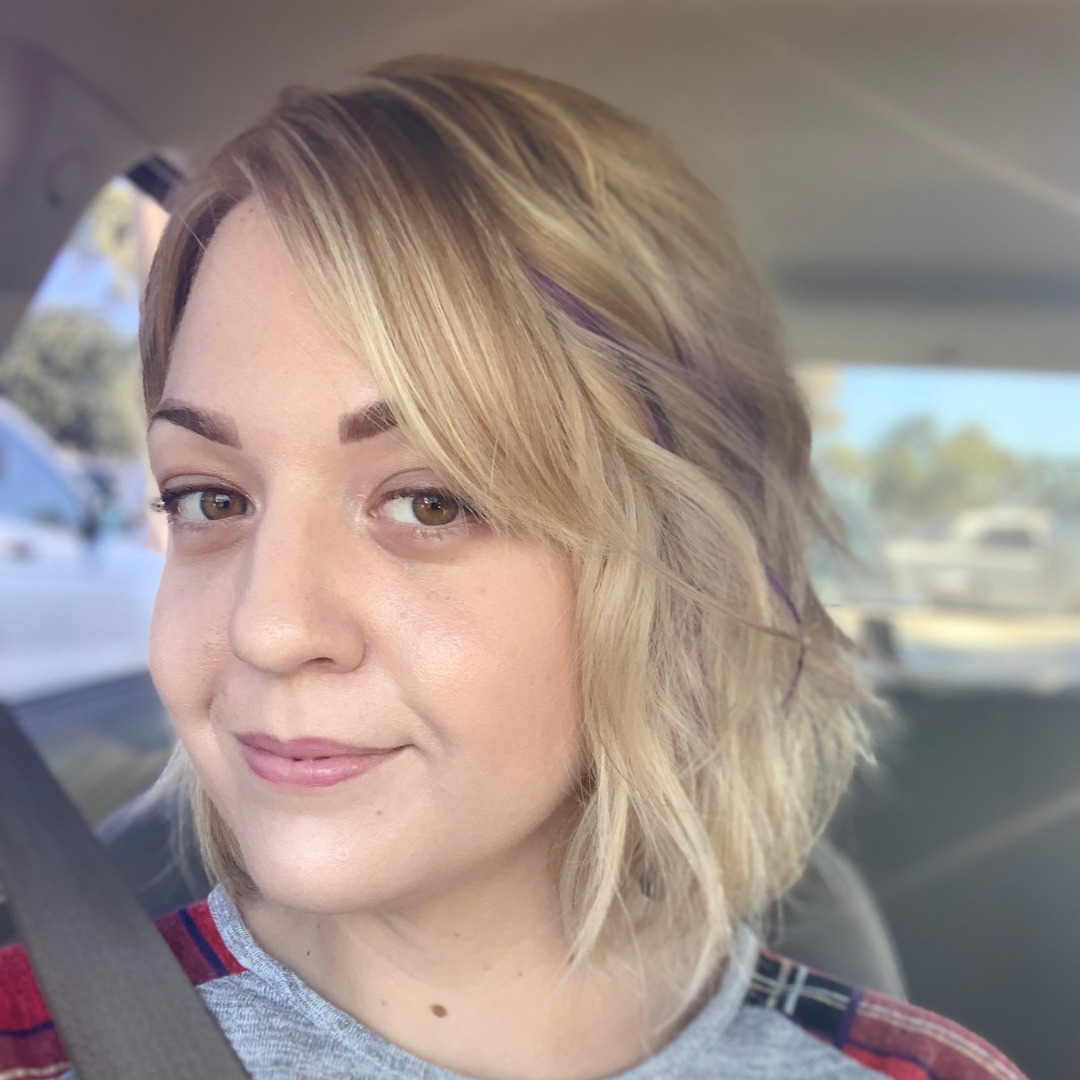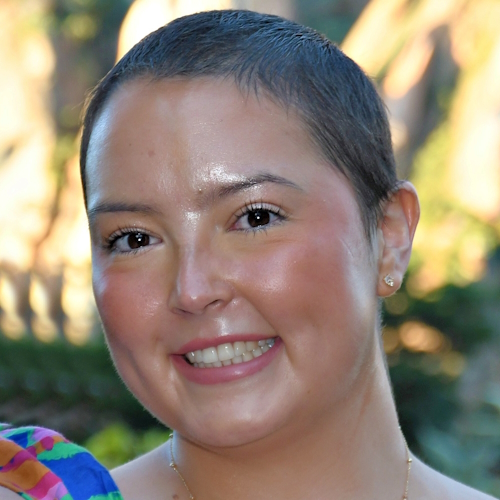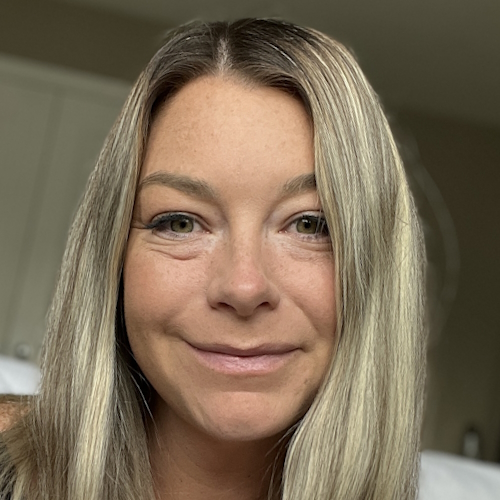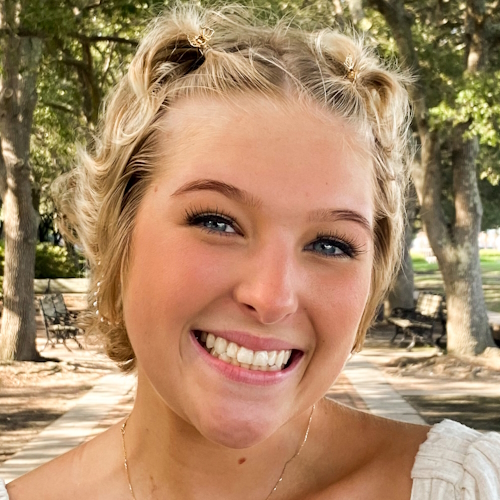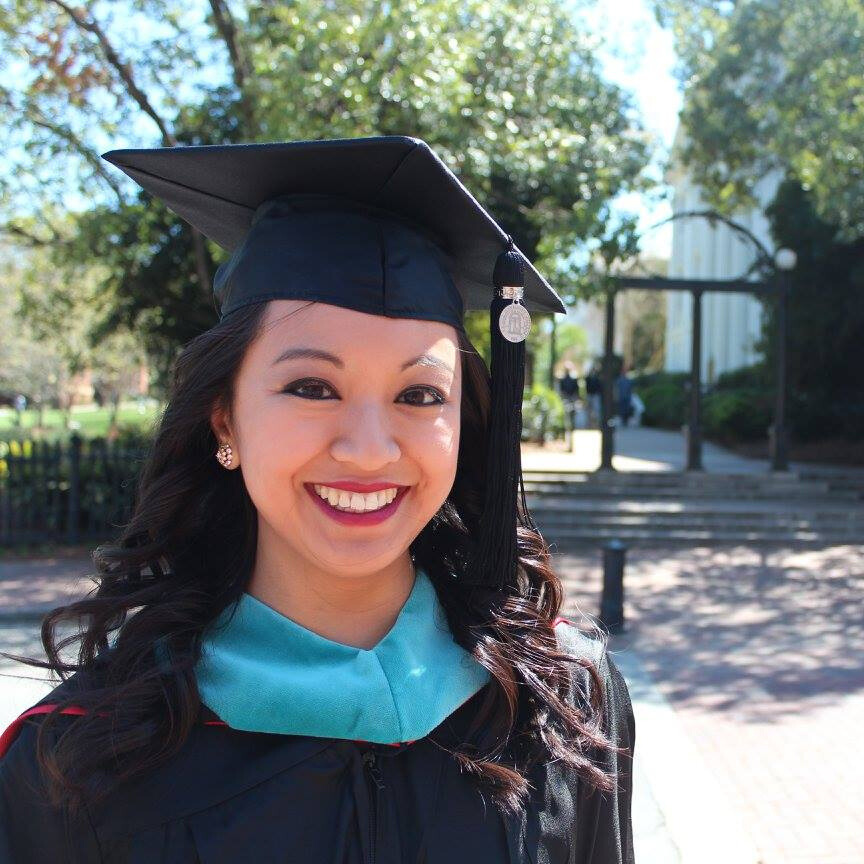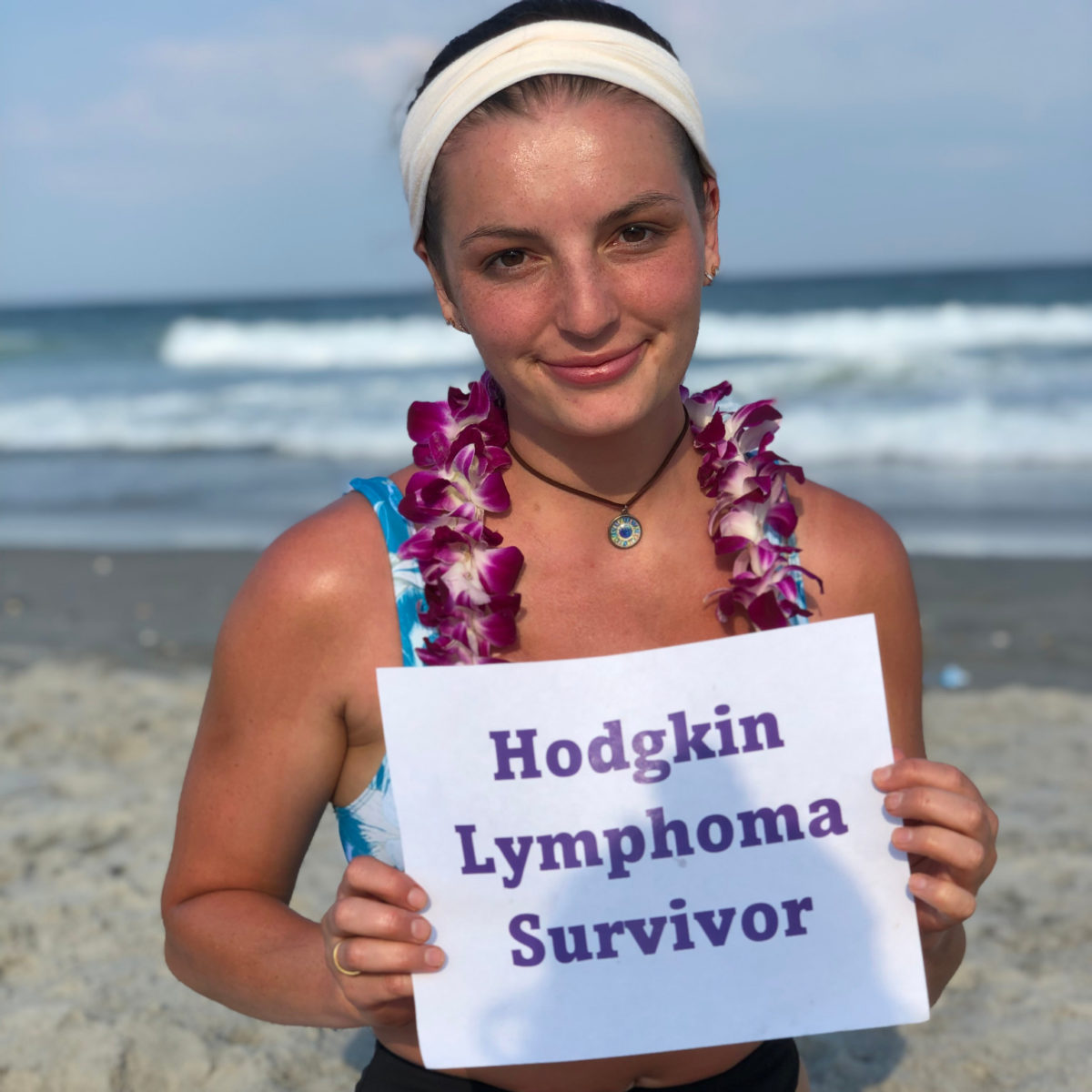Chelsey Gomez’s Stage 2 Hodgkin’s Lymphoma Story
At age 28 with no family history of cancer, Chelsey did not think much of her new symptoms like fatigue, vertigo, and itching. Shortly after starting a higher position at work, she had an episode of vertigo that caused her to nearly crash her car which led her to take a deeper look at her symptoms. A trip to the E.R. and chest x-ray revealed she had tumors in her chest. She was then diagnosed with stage 2 Hodgkin’s lymphoma.
Chelsey was paired with an oncologist she believed was fated to be her doctor but after a series of red flags like gaslighting and withholding medical information, she sought out a second opinion at the Mayo Clinic after relapsing. She now champions being a patient advocate and trusting your gut when it comes to your medical care.
Chelsey shares her cancer story with us, her experience with chemotherapy and a stem cell transplant, how she talked to her daughter about losing her hair, and what inspired her to share her artwork and create books about cancer.
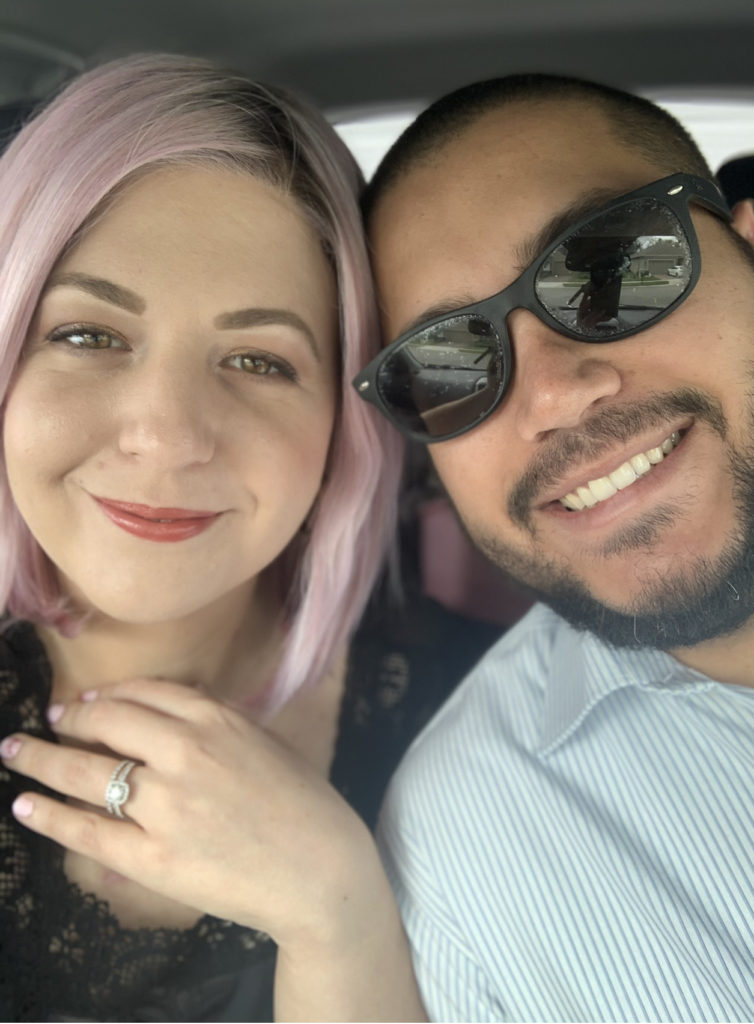
- Name: Chelsey G.
- Diagnosis (DX):
- Staging: 2
- Symptoms:
- Fatigue
- Itchy legs and feet
- Swollen lymph node at the base of the neck that wouldn’t go down
- Vertigo
- Shortness of breath
- Weight loss
- Age at DX: 28
- Treatment:
- Chemotherapy
- ABVD
- Brentuximab
- ICE
- BEAM
- Stem Cell Transplant
- Chemotherapy
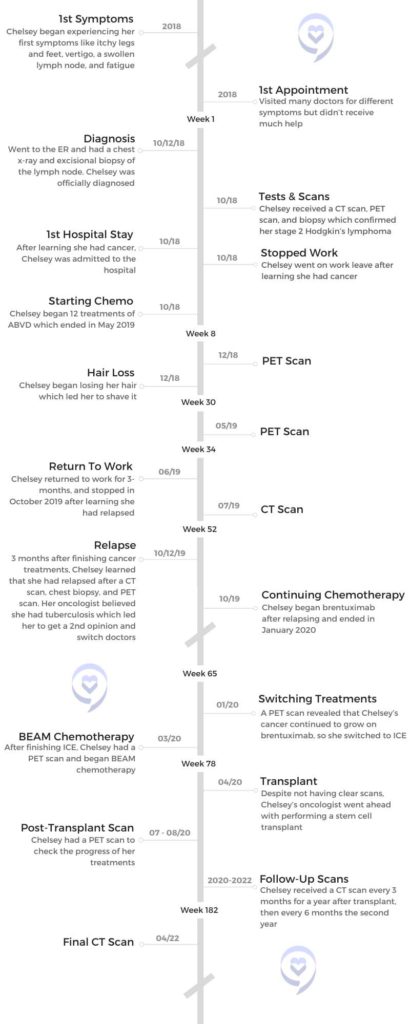
Live for yourself. Life is too freaking short. There’s no other way to put it. Make yourself happy. Focus on your family. Do what you always wanted to do.
Chelsey G.


Brought to you in partnership with The Leukemia & Lymphoma Society and Imerman Angels.
- Symptoms & Diagnosis
- Tell us about yourself
- What were your first symptoms?
- How were you diagnosed?
- How much time passed between your first symptoms and getting diagnosed?
- What did you suspect was behind your symptoms?
- How did you react to your cancer diagnosis?
- Did you know what to expect when you started your cancer journey?
- Describe what happened after your visit to the E.R.
- Seeking out answers to cancer questions
- Being A Patient Advocate
- Red flags in medical care
- Describe your bone marrow biopsy experience
- The importance of being a patient advocate
- Did your oncologist allow you to make informed medical decisions?
- Describe having an adverse reaction to chemo
- What did the doctors think was causing your reaction?
- The doctor confirmed it was a bleomycin allergy
- What were the effects of your allergic reaction to bleomycin?
- Were there delays in your treatments?
- The oncologist withheld important health information
- Is it legal for doctors to withhold your health information?
- How did you react to hearing you had cancer again?
- Why did your doctor think you had tuberculosis?
- Getting a second opinion
- Describe what it was like to switch doctors
- Finding a caring medical team
- Chemotherapy & Transplant
- Describe your experience with Adriamycin chemotherapy
- When did you receive your first and second cancer diagnoses?
- What was your experience with brentuximab?
- Attempting to get into remission with ICE chemotherapy
- Preparing for a stem cell transplant
- COVID caused unexpected issues
- Describe what a stem cell transplant is
- How stem cell donors can save lives
- What was the outcome of your stem cell transplant?
- Survivorship
- Describe finishing cancer treatments
- How did you react to finding out your cancer returned?
- How did you start sharing your cancer story?
- What has helped you overcome the pressure of fulfilling people’s idea of cancer patients?
- What did it feel like to overcome cancer?
- What inspired you to use artwork to express your cancer journey?
- Building a cancer community through social media
- What was the inspiration behind your first book?
- Have you seen the impact that book has made on people?
- Reflections
Symptoms & Diagnosis
Tell us about yourself
My name is Chelsea Gomez. I am 32 years old and I’m from Florida. I am married to my husband, who I’ve been with for 19 years if you can believe it. And we have a 7-year-old daughter named Luna.
My full-time job is I own my own business and it’s a non-traditional cancer-type brand where we use humor to cope with cancer rather than crying. We cry sometimes, but not all the time.
My hobbies involve hanging out with my daughter and my husband, and art. I love all types of art from digital art to needle felting and all the above.
What were your first symptoms?
I was first diagnosed with Hodgkin’s lymphoma when I was 28. It was in the latter part of the year. I had gotten a promotion in March, and it really took over my life. I was working a lot, so I was very tired. I thought it was because I’m working a lot just like any other young person.
I also started getting itchy legs and itchy feet to the point where I would scratch my feet so much that they would bleed. I went to the dermatologist, and they said it was nothing, here’s a cream.
I started also getting vertigo and not being able to pay attention and I almost crashed my car one time. That’s when I went to another doctor and said, I don’t know what’s happening. Am I just stressed? They told me that it was stress and they put me on some attention medicine because I have a high-stress job.
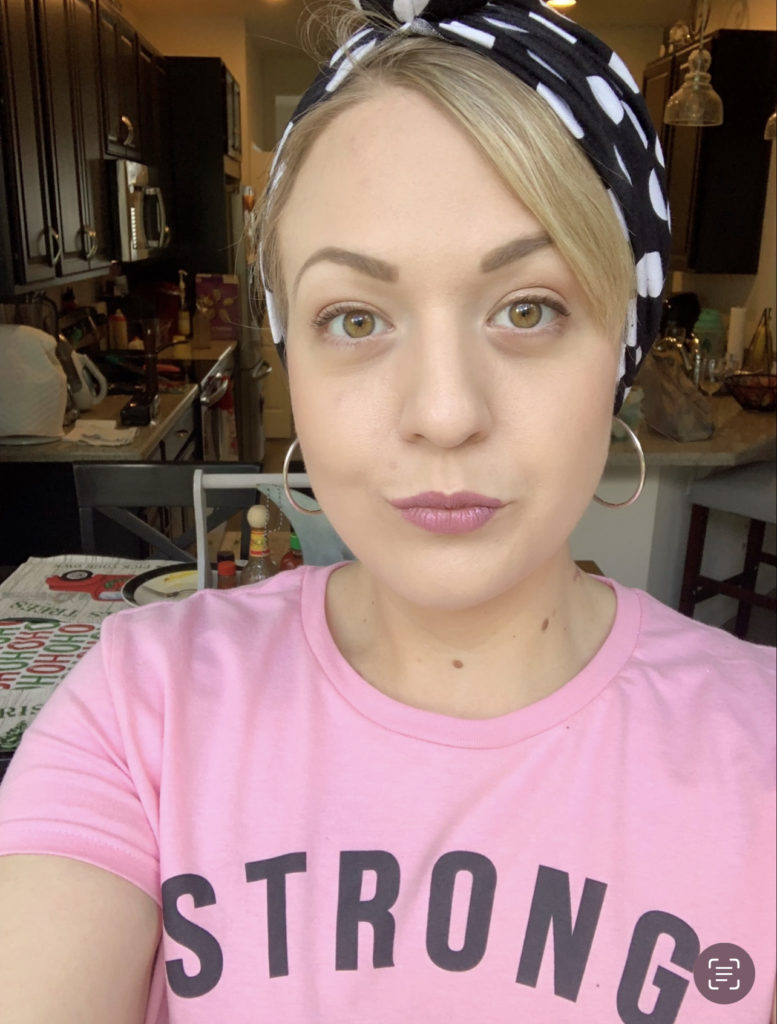
The thing that prompted me to look further after I went to several doctors that said everything was good, was I got a swollen lymph node on the base of my neck. I had never felt anything like that and it wasn’t going away. I ended up going to the urgent care for them to look at it and they told me it was okay, but then the doctor looked into my eyes and said, “You should follow up on this.” I feel like they were indirectly giving me a message.
How were you diagnosed?
She said, “I’m really sorry, but there are tumors all over your chest and we’re going to need to admit you.”
When the lymph node didn’t go away, I was keen to ignore it because I was very busy working, but my family said, “No, you’re not doing this. We’ll watch your daughter. You and your husband go to the E.R.” I went to the E.R. to appease them and I was skipped over all the people waiting in the E.R. I was like, whoa. That never happens.
They brought me back and a doctor said, “We’re just going to do a chest x-ray. You’re probably going to be out of here in 5 minutes, but let’s do it just to be sure.” They did it, she walked in the door holding a stuffed animal like a bear, handed it to me and I saw tears in her eyes. She said, “I’m really sorry, but there are tumors all over your chest and we’re going to need to admit you.”
I went from being this very young, active, working person, mom, wife, everything, to suddenly…what is happening? I remember another doctor walked by and was like, “Yeah, it’s probably lymphoma. Good luck!” I was like, What? What is happening? It was quite the ordeal.
How much time passed between your first symptoms and getting diagnosed?
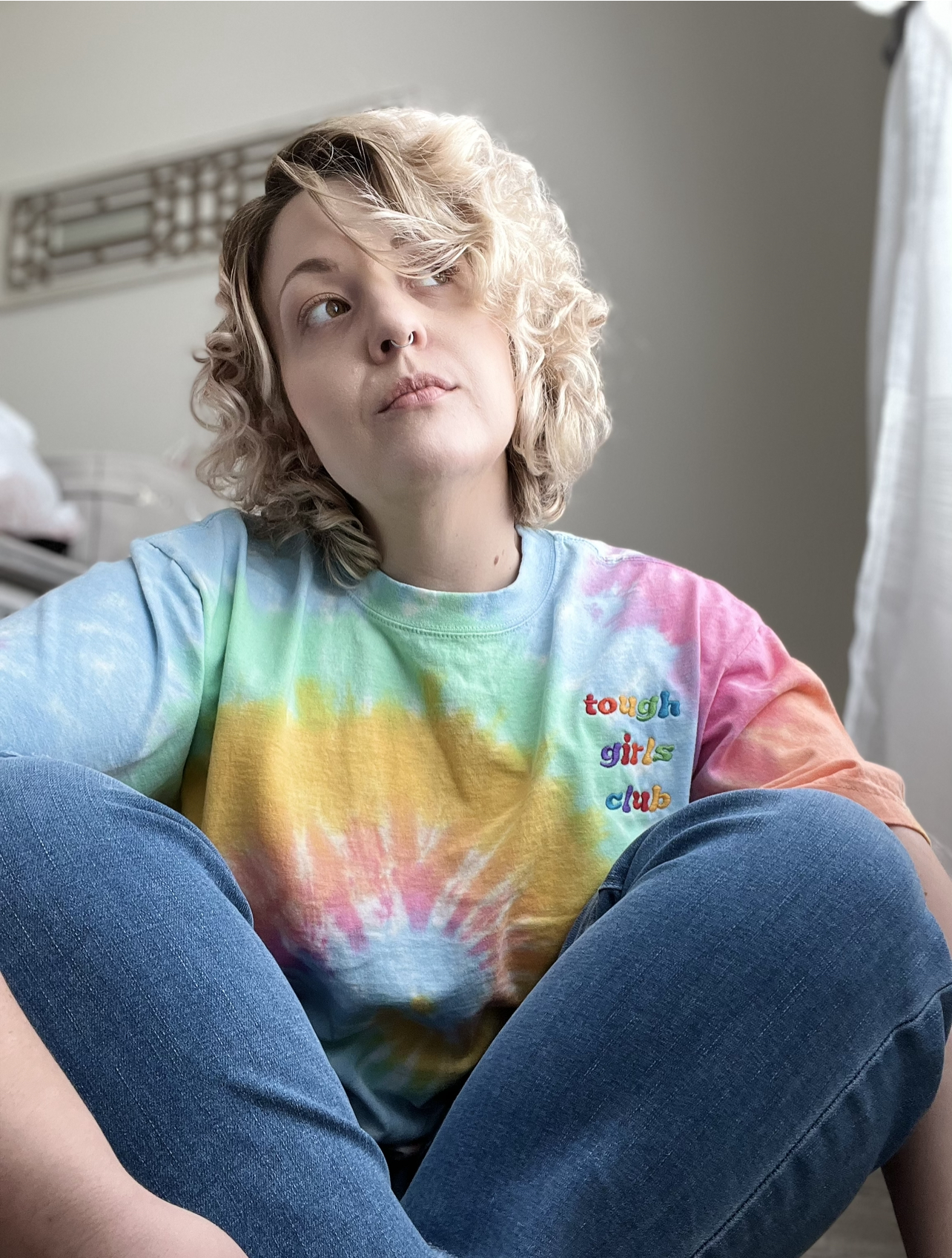
It was several months.
Also, another thing that I experienced around that time was I was losing weight. I was on Weight Watchers so I thought, “Oh, it’s finally starting to work. Great!”
I have this picture of myself where I am in the first PET scan I’ve ever been in. I took a picture in the chair and then I took a picture of myself 3 months later after I had been on chemo. I realized how ill I had looked. I didn’t realize it at the time because I wore makeup. I had these big dark circles. I just didn’t look well. I could see that I was wasting away and I didn’t realize it because I was so focused on working.
I know we all Google, and when I had the lymph node and it wasn’t going away I went to CentraCare and they told me it was fine. They said it was an infection. They gave me high-dose antibiotics – extremely high doses. I took them consistently for 2 weeks and the lymph node was still there and it didn’t hurt. It was just there. For the most part, it felt fine so it was odd to me that I needed antibiotics.
I know about lymph nodes. They do swell when you’re sick but I wasn’t sick, I took these antibiotics and I was Googling swollen lymph nodes. If you Google that, it comes up lymphoma.
What did you suspect was behind your symptoms?
For some reason, when we sat in the parking lot of the CentraCare, I looked at my husband and I had tears in my eyes. I said, “I just feel like this isn’t right. I feel that there’s something more that’s going on. I don’t want to say the ‘C word.’” He’s an eternal optimist and I’m an eternal pessimist. He said, “It’s okay. It’s not cancer. Cancer is the least likely explanation for most things.”
I appreciated that, but I just had this feeling that day in the parking lot that there was something bad going on. Even though I didn’t feel that bad in my own mind. Looking back at all the symptoms, I was sick but I didn’t realize it.
I got truly lucky in the E.R. because the doctor that was working was a younger doctor. She ended up telling me – which made sense why she had tears – her friend in high school had lymphoma so she knew some symptoms of it. She saw my age and I had some shortness of breath, but again, I had asthma, anxiety, all those things. Where another doctor may have just let me go, she ended up pushing them to do the chest x-ray just to make sure. I tried to track her down one time just to write her an email to say thank you.
How did you react to your cancer diagnosis?
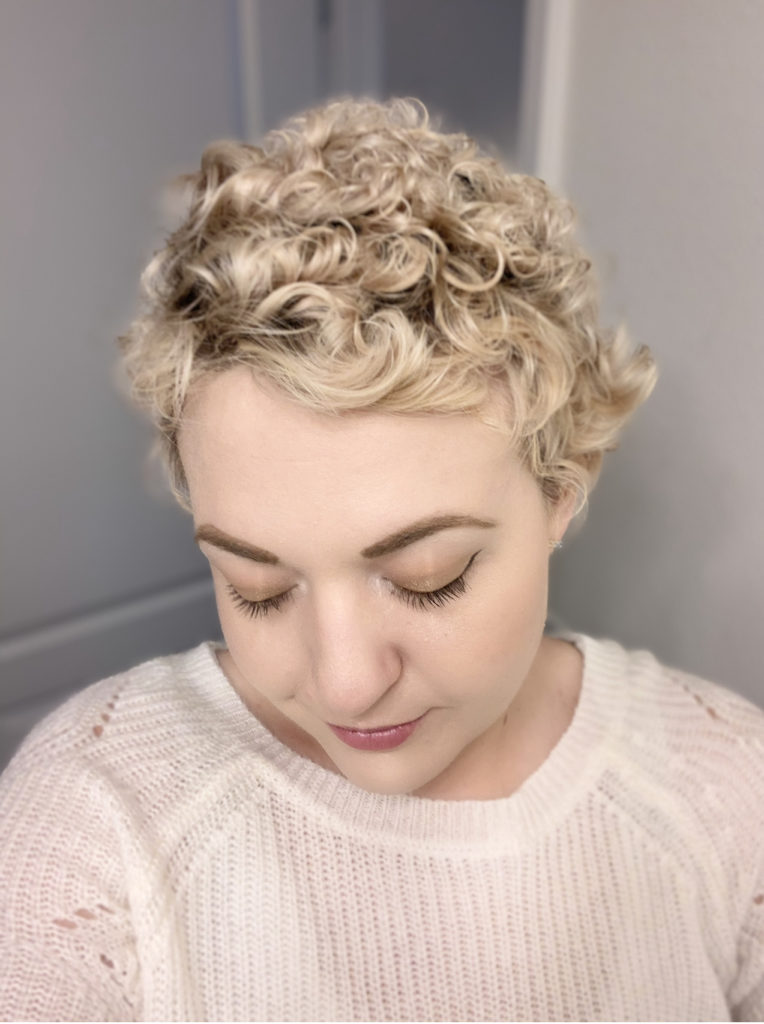
went from never being hospitalized, other than having my daughter. I had to get my first-ever surgery, so it was a whirlwind. I had surgery within 48 hours. Now I have a huge scar on my neck. I was crying. I told my husband, “I don’t want to lose my hair!” Screaming.
At that point, it wasn’t 100% I had cancer, but it wasn’t looking good. I was just overwhelmed. I was like, how is this my life? How anybody thinks, and also clinging to the hope that it wasn’t cancer. I was Googling everything like sarcoidosis, which mimics that. I was like, anything but cancer, anything but cancer, just very overwhelmed.
I never in a million years expected to have cancer. There’s no cancer in my family other than breast cancer on my grandmother’s side and her sisters. Never my grandma, never my mom, never anyone immediate. Hodgkin’s isn’t genetic cancer, it’s not typically spread down so I would have never heard of Hodgkin’s. I was like, Who is Hodgkin’s? Who are you? Why are you here?
»MORE: Dealing with a Cancer Diagnosis
Did you know what to expect when you started your cancer journey?
I often talk on my page about not liking a lot of the battle language or those types of things. But when you get diagnosed, you truly do not know what you’re in for. A lot of what you parrot back is what you’ve seen in media or on shows and I didn’t know what to expect. What is chemo other than what I’ve seen on Scrubs or whatever other show?
It’s crazy how quickly these things become normal. It becomes your life. It becomes reality. But before that, you have no concept. Sometimes I get frustrated when people think that cancer is one way, but I don’t fault them because I was that person before. That’s why I’ve dedicated the rest of my second chance at life to informing people of what cancer really is. Especially as a young person. It’s a way different experience than if you’re quite older when you get cancer.
When you get diagnosed, you truly do not know what you’re in for.
Describe what happened after your visit to the E.R.
I entered the E.R., they did the chest x-ray, sent me for a CT scan, and saw that I had stage 2 and it was just in my chest and up. At that time we didn’t know it wasn’t in my bone marrow, so I was stage 2. They did the excisional biopsy, they discharged me.
The next day, I went to go meet with an oncologist that was just walking by in the hospital – not the one that screamed I probably have lymphoma. It was another one. He ended up being my oncologist. I didn’t look into anything further. I just figured, okay, that’s where I’m going to go. Being a young person, I was like, maybe it’s fate he was walking by.
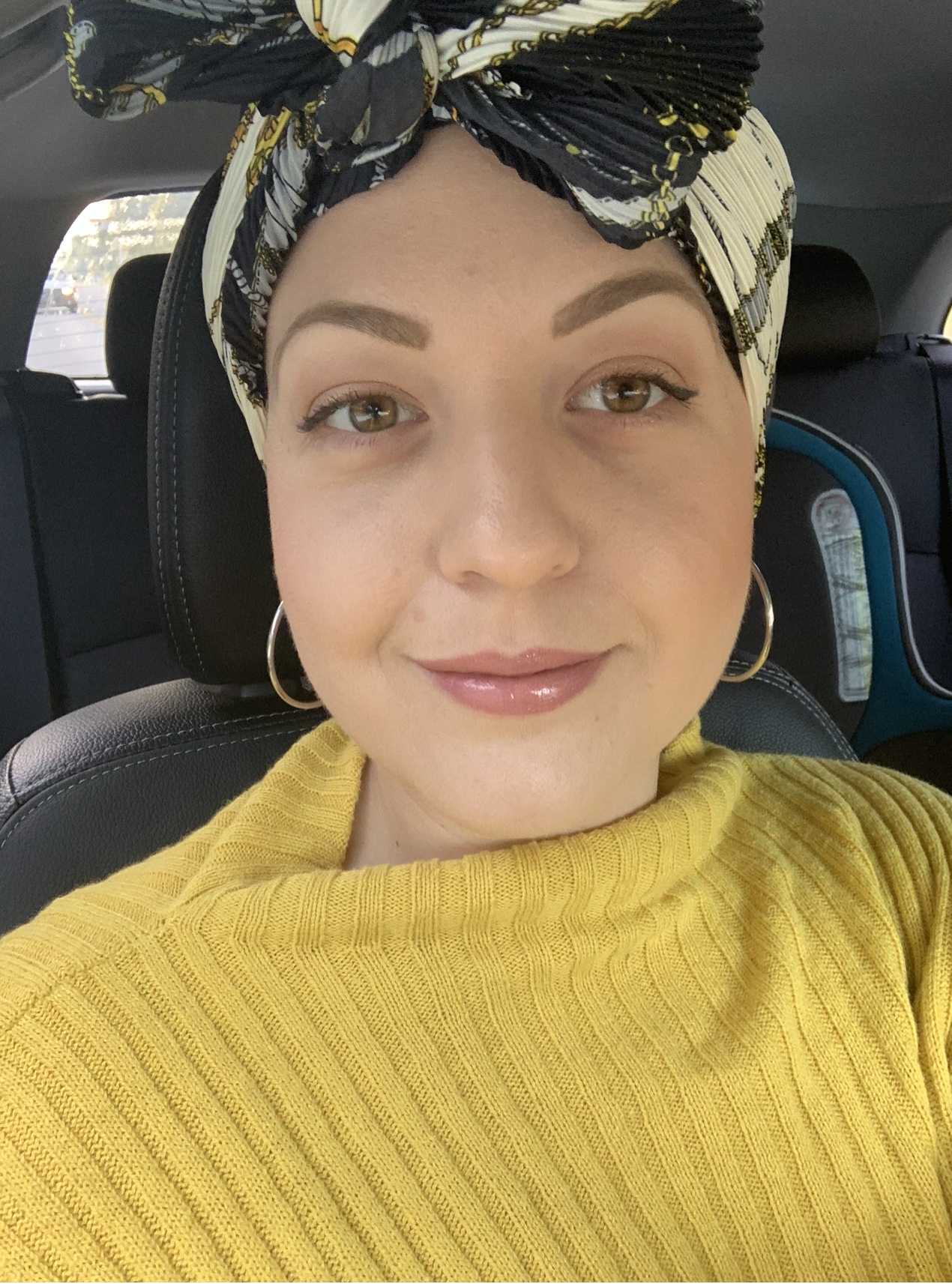
They said, “Ms. Gomez, we were going to call you. Yes. Unfortunately, it came back that you have Hodgkin’s.” So I found out in the middle of a fast food restaurant with nobody even calling me.
The day that I met with him, there were no actual results yet. It was still being looked at. They kept bringing up sarcoidosis. Also, I’ve had chronic mono since I’ve been a teenager. So that was another thing. “Your mono markers are high. Maybe it’s something to do with that.” I think with sarcoid, it can have all of that. I was like, you’re telling me there’s a chance it’s not cancer.
I was scheduled to come back in about 3 days and I wasn’t working at that time. I had gone on leave temporarily. I was every day Googling, scrolling, Googling, scrolling. This is not funny, but at the time it was like, is this really my life? I was getting lunch at a fast food restaurant in between Googling, refreshing, scrolling, and all of a sudden my screen popped up, “Bone marrow biopsy scheduled for tomorrow. PET scan scheduled for tomorrow.” And I thought, “What is this? What’s a bone marrow biopsy? What’s a PET scan?” And they didn’t call me.
I put down the food and told my husband we have to leave. I went home. I got on the phone and said, “Hi, this is Chelsey Gomez. This appointment just popped up. Do I have cancer?” The person said, “Hold, please.” Then they put a nurse on the phone. They said, “Ms. Gomez, we were going to call you. Yes. Unfortunately, it came back that you have Hodgkin’s.” So I found out in the middle of a fast food restaurant with nobody even calling me. I had to call and ask myself.
It was October 12th, because that’s the day I’ve been diagnosed 2 years in a row. My daughter was at a preschool at the time. I just laid on our carpet in the middle of the living room and I sobbed the worst sobbing that I’ve ever sobbed in my life, not knowing anything. I felt so hopeless and helpless because I had to call and ask, do I have cancer? There’s never a good way or a good time to have that conversation, but I feel like there are better ways than that.
Seeking out answers to cancer questions
Later, when I got off the floor, I started seeking people out there on Instagram who might have had this cancer so I could understand. There weren’t people sharing about their cancer around this time on social media. It’s been a new wave of that.
I found a few people and I sent them messages and one girl replied to me. I’m always forever grateful to her because she described to me what a bone marrow biopsy felt like, what it really is, how it works, and how she’s doing. She didn’t have to do that, and I’m so grateful. That’s why I’ve always, on my account, tried very hard to write back and be present because I’ve been that person. I’ve also been that person who didn’t get answered in a time of crisis and felt like, please help me. Because the doctors, the oncologist, weren’t explaining anything to me. They just said, “You got cancer. Come get chemo.”
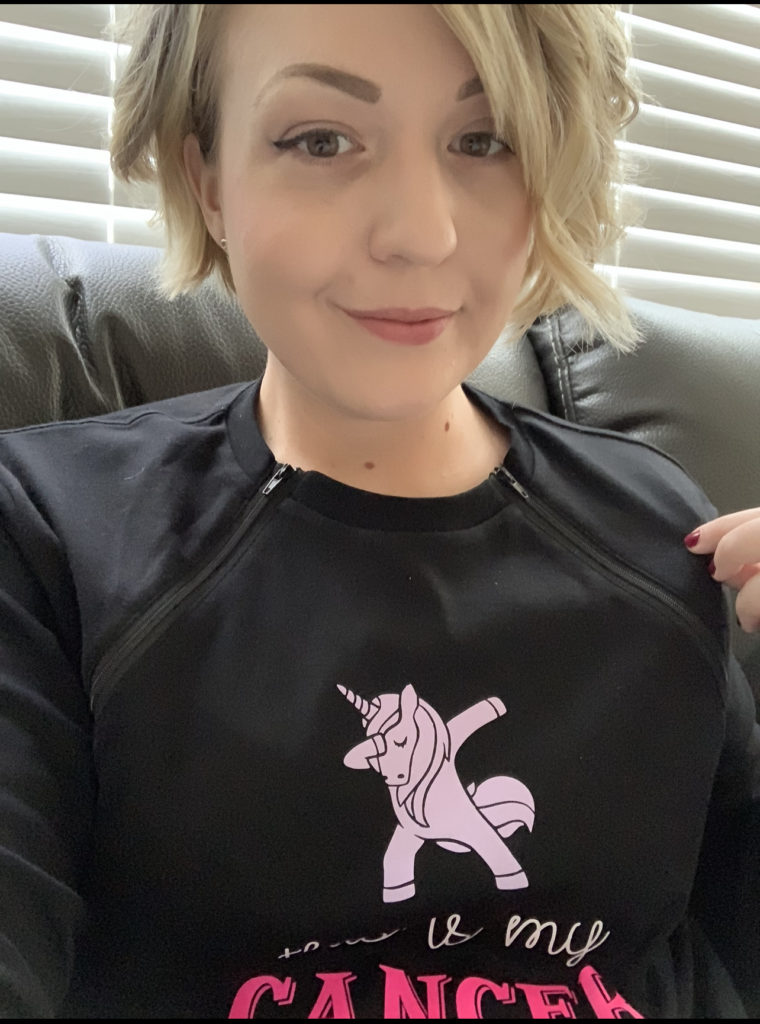
Being A Patient Advocate
Red flags in medical care
I just shared a post today about ways to advocate for yourself with the doctor. I sat down to write the caption and I was like, “Whoa, this stuff wasn’t good.” My first oncologist, it was not fate. He had a parade of red flags that I didn’t see because I didn’t know any better. When I asked questions, he would be very dismissive. He called me Dr. Google, but not in a funny way. In a way like, why are you asking me questions?
He gaslit me about amounts of treatments. I would have my family with me all the time. That’s important. I’m not going to be able to focus [in doctor appointments] because I’m so stressed, so overwhelmed. My family would listen, would parrot back to me what was said, and it would change the next time.
My treatments halfway through weren’t working like they should. Now that I know more about Hodgkin’s, nothing was ever escalated. I had chemo taken away because I ended up getting an emergency reaction to it, which I understand now. It was never explained to me what that could do to me, why the scan wasn’t clear.
When I realized that I was relapsing, I had a scan and it was lighting up when I was relapsing. I asked about it and was told it was probably tuberculosis.
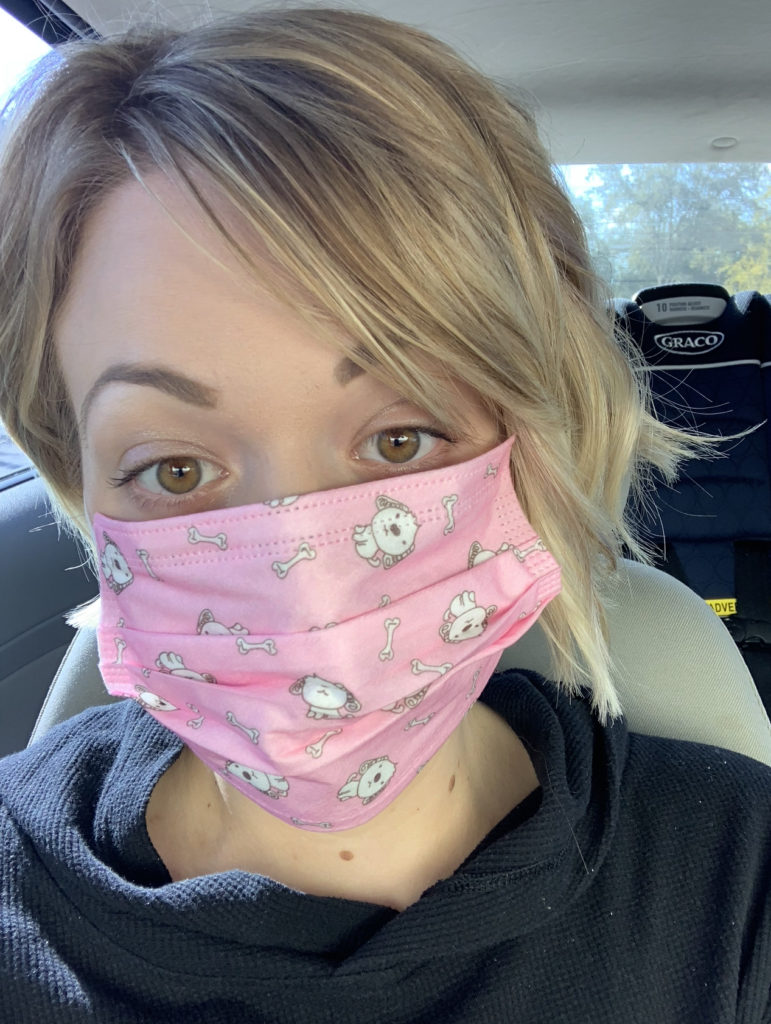
My first oncologist, it was not fate. He had a parade of red flags that I didn’t see because I didn’t know any better. When I asked questions, he would be very dismissive.
Describe your bone marrow biopsy experience
I think we did a PET scan and then a day later, I had a port placed in the morning and a bone marrow biopsy in the afternoon. Greatest day.
I had asked about the bone marrow biopsy because the girl I spoke to told me it was very painful. I said, “Is there a way to do it when I’m under?” I was sedated for a port placement, so it could have easily been done at the same time and saved me a lot of heartache. The oncologist said, “It’s really not that big of a deal. I do them in the office all the time. I mean, if you really insist upon it.” So very dismissive like, if I do this I’m stupid. I said I guess I won’t do it.
Also, as a woman, you try to shrink down and you’re young and you are the patient and this is the doctor, he’s been around forever, and you don’t know anything about Hodgkin’s. So I just shrunk down.
I left in a wheelchair out of that bone marrow biopsy. My mom is traumatized from that. She was with me. She said, “Chelsey, I could hear you screaming and when you came out, you were in a wheelchair. You walked in as my daughter.” I had a port placed, but I was still walking. I was still upright. She’s like, “And you left in a wheelchair. I’ll never be able to understand what was happening.”
I know my mom was in the other room going, “Can I go in there?” And they said, “No, ma’am. You can’t”. It was awful. It was pain. It was worse than childbirth.
Let me just side note for anybody that’s watching this. I’ve talked to people. Bone marrow biopsies aren’t supposed to be painful like this. There are ways to do them that are not painful and there are sedation options. So the fact that it was so painful and that I was made to feel stupid for wanting sedation is not okay.
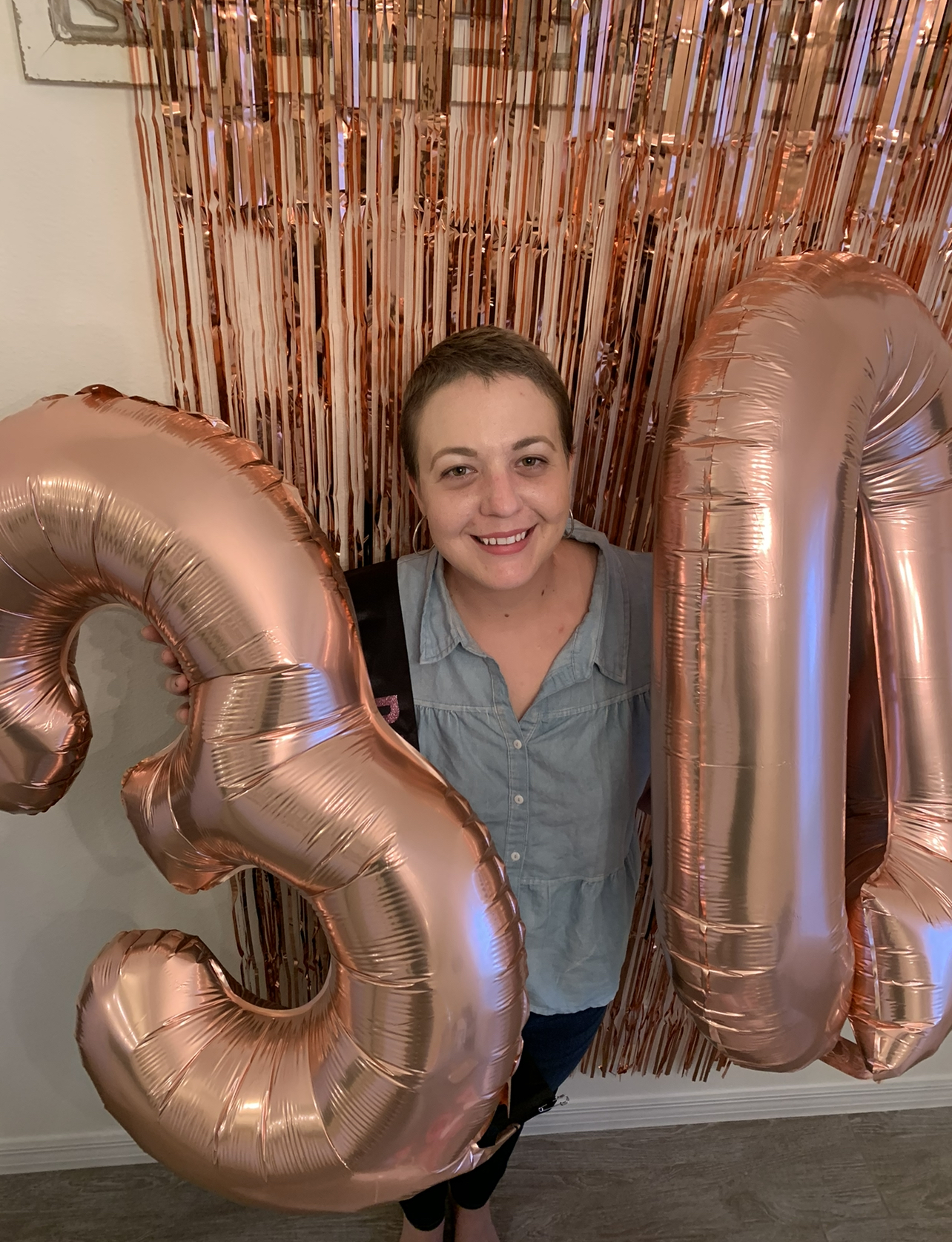
The importance of being a patient advocate
The time for being accommodating and overly nice isn’t when you have a cancer diagnosis and you’re facing all of these things. I’m not saying you have to go in being abrasive, but you should be direct. You should be confident and if you aren’t comfortable doing that, bring somebody who is. My dad came with me a few times. I wish I would have told my dad to say something. I was 28 but still, when you’re that age, you still need your parents a lot. So my dad was in there with me, and if I could go back, I would have him stand up for me when I didn’t have the strength to do it myself.
Also, get a second opinion. It’s not fate that they walk by. It’s not. Maybe they are the best for you, but at the same time, this is your health.
As a woman, he also made it feel like I had no time to preserve fertility. He told me that I had only 7 months to live. He literally said 7 months, and as a stage 2 Hodgkin’s patient, I don’t think that’s accurate. Now knowing what I know, I could see if it was stage 4, very advanced, but no. He made me feel that if I took these extra 2 or 3 weeks to preserve my fertility, I would be giving up being a mother to my existing daughter.
»MORE: Read more about preserving fertility
That’s why today when I was writing [a post about advocating for yourself], I was like, these things happen to us. I’m just so easily talking about it, but in the moment, I didn’t know. That’s why now I’m telling people you have to speak up for yourself. And if you can’t do it, bring someone. I don’t care what you have to do. Get a nurse that you can trust. Do something because this is not okay.
I’m one of those people who very much trust my gut. It felt wrong. I didn’t trust my gut. I believe that the reason I had to get a transplant, later on, was because I was with this doctor.
The only good thing he ever told me was that Hodgkin’s was the good cancer. Now, looking back, that is a red flag. Maybe it’s more treatable than other cancers, but it’s not always good. It kills people. My friend’s brother passed of Hodgkin’s and it’s so hurtful when you hear Hodgkin’s is the Cadillac of lymphoma, Hodgkin’s is so great. It’s not great. No cancer is great. No cancer is good.
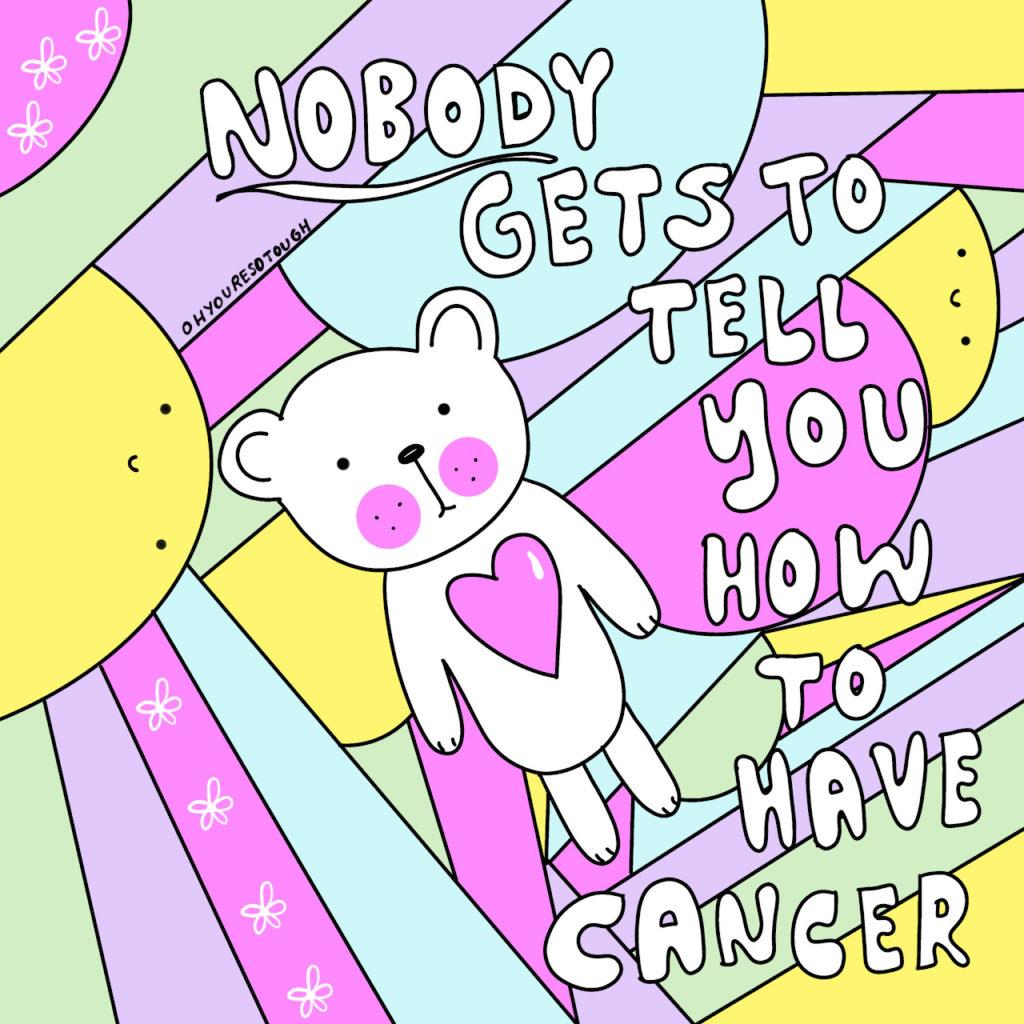
The time for being accommodating and overly nice isn’t while you have a cancer diagnosis and you’re facing all of these things. I’m not saying you have to go in being abrasive, but you should be direct.
Did your oncologist allow you to make informed medical decisions?
He explained preserving fertility, but that was in one breath and then the next was the 7 months. That was in 2018, we’re in 2023. I’m still here. I’m still talking to you, but that 7 months comment haunts me so much even though I know that it wasn’t true. It still is a psychological scar in my soul that I feel every day. Sometimes I’m just like 7 months, 7 months, 7 months, and I don’t feel like that was true. That’s not something you should say to people unless it’s absolutely true.
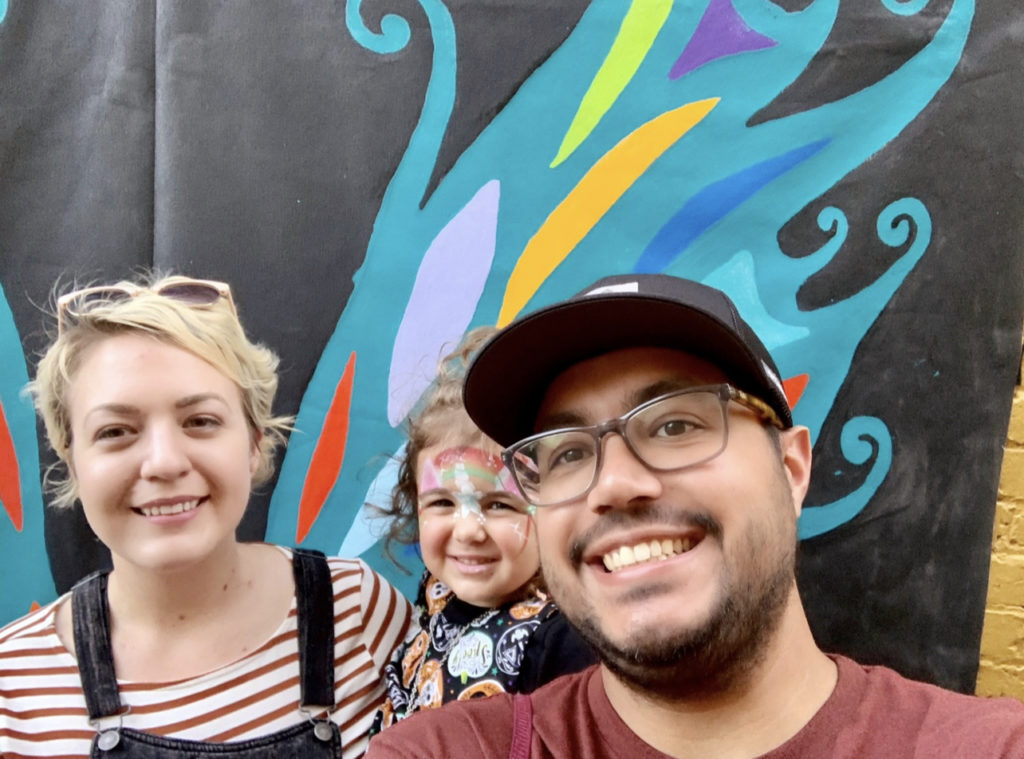
My daughter’s birthday is on Halloween. I got diagnosed on the 12th. The week after the 12th, we had a Halloween cruise planned for her. We paid for over a year. We had it all set up. He told me I need to cancel it immediately. I could have gone on that and had one more nice time with my family and been able to do preservation of my fertility and still been absolutely fine to start treatment. But he made it seem like if I didn’t get in that chair in the next day or 2, that was it for me.
It’s awful because when you’re a parent of a small child or any age child when you get cancer, those moments are taken away from you. A lot of stuff I don’t even remember of her at that age. He took that away from me. He also took my ability away to have more children to have those experiences with.
Describe having an adverse reaction to chemo
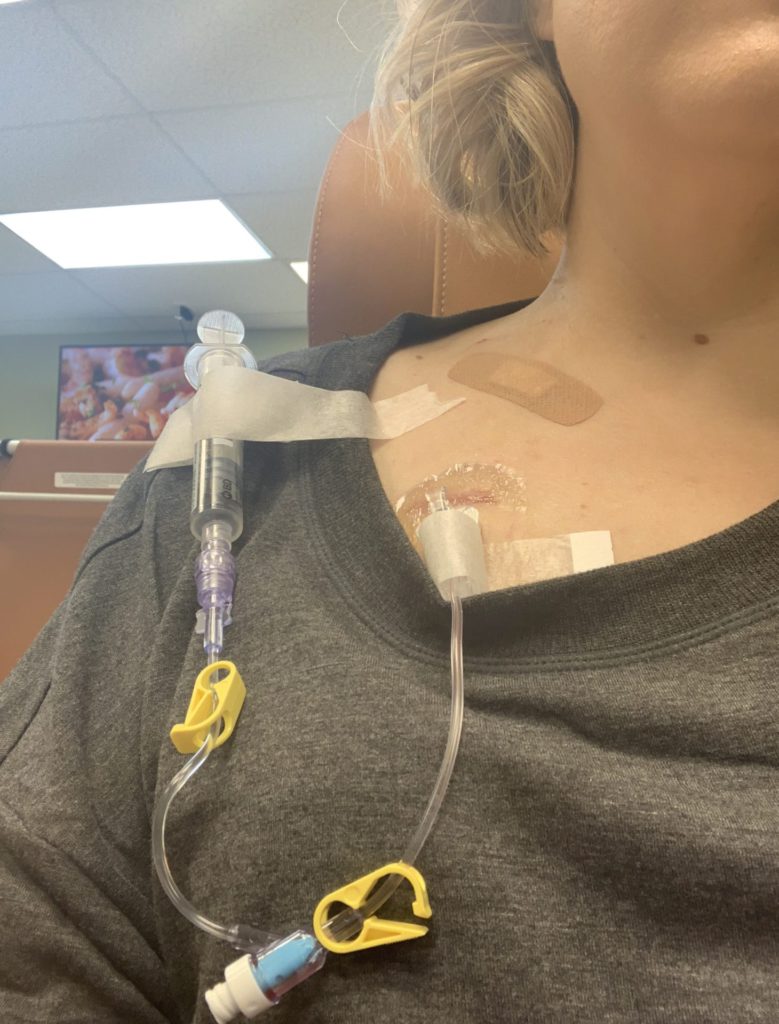
I had ABVD chemo regimen with Bleomycin, and that is what I ended up having an allergic reaction to 4 treatments in. We started ABVD maybe 2 cycles before I had another scan to see how it was going. The scan in December wasn’t completely clear. It was clearing, but it wasn’t clear. I had a bulky tumor, but that was never addressed. Now I know what it is from being in this space and researching. There are more considerations you need when you have a bulky tumor.
We get to this appointment, [the chemo] is working but not all the way, but he said it was working. Now looking back, if your scan isn’t completely clear, you should definitely have a conversation about escalating your chemo to a different one that is more severe but could potentially get rid of the Hodgkin’s upfront. He never discussed that with me.
After that appointment, it was New Year’s Eve. I had the next chemo after the scan because something weird happened with the insurance. I had to go to a different office because the one I was normally at wasn’t open. I left there, I went home, and I was really ill. I said, “I’m just going to go lay in bed.” I was always ill after chemo.
I remember my husband waking me up and asking, “Are you okay? You don’t look okay.” I was like, “I’m not okay. I just had chemo.” He felt my head and took my temperature. It was 103 degrees. Once it’s 101 point something, you have to go to the doctor, to the E.R. He said, “Let’s go now.”
I stood up and I was like, Oh, no. I felt so ill. He rushed me over to the E.R., and the E.R. didn’t take me in quickly. It wasn’t the same one that took me in front of everyone. I was laying on the floor waiting in the hospital to be seen as a cancer patient, immunocompromised. They put me in finally.
What did the doctors think was causing your reaction?
They thought I had sepsis. That’s very bad if you have sepsis as a cancer patient who’s immunocompromised. They brought me into ICU and they strapped me up to all of these things, gave me shots in my stomach, and they kept saying I had sepsis. I was like, “How am I talking to you if I am septic?” I was very coherent.
I started Googling. My nickname Dr. Google is good. You should all be Dr. Google because it could tell you a lot. I ended up seeing that with Bleomycin, sometimes you can have a severe allergic reaction to it and every symptom I had was that. It wasn’t a big hospital and they didn’t know anything about it. I said, “Call my oncologist, please.”
It took 3 days for any oncologist from the practice to come by and see me and I was being traumatized day by day. They realized it wasn’t sepsis. They thought it was an infection. They had me on all of these IV antibiotics 24/7. I didn’t know why I was on them. There are no tests coming back. There’s no nothing.
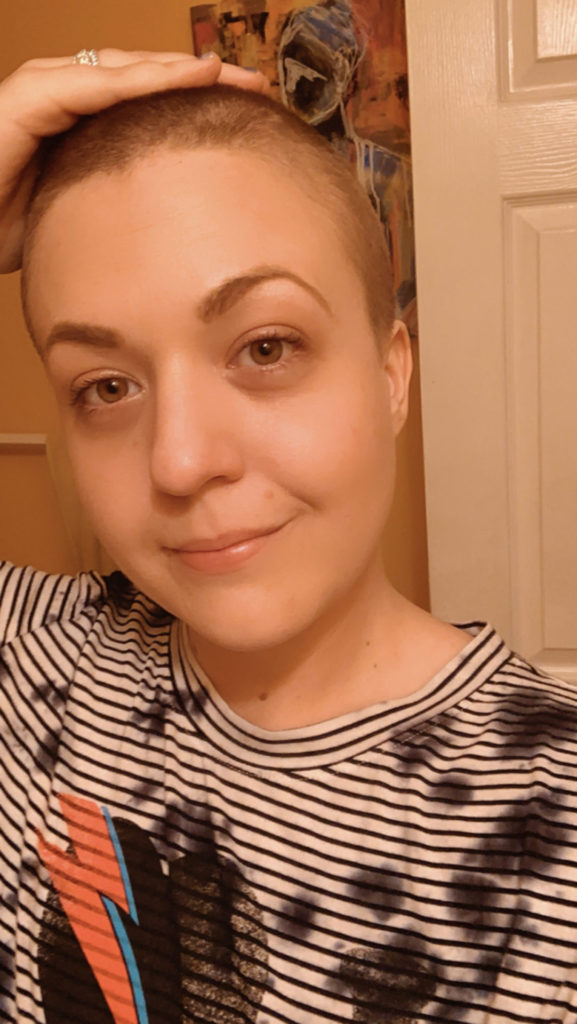
Finally, on the fourth day, my oncologist comes by and I said, “I think this is what it is. These are all my symptoms. I don’t have anything else. They can’t find anything in the cultures. They can’t find anything. Can I please get out of the hospital? I want to be discharged. My daughter is being taken care of by my mom. Her whole life’s being disrupted. My husband’s with me.” He said, “We’re just going to give it a little bit longer.” Not explaining anything. It felt like I was in prison. I feel like people who are stuck in the hospital like this can relate if they’ve ever been this person.
I started refusing the antibiotics because I knew that it wasn’t true. I knew this was what was happening. They ended up saying, “You can get out if you will take these oral antibiotics when you leave.” I said, “But I’m allergic to those ones.” They said, “We can’t discharge you unless you say you’re going to take them.” I said, “Okay, I’ll take them.” I didn’t, but I had to say I was going to take something that I was allergic to.
The doctor confirmed it was a bleomycin allergy
When I ended up seeing my oncologist after that, he said, “I’m pretty sure that was a bleomycin allergy. We’re going to take you off of bleomycin, but we really need to get your treatment going because it’s been delayed enough.”
It sounds like a Lifetime movie, but it is 100% true. It’s so insane to me, and that was the first time I said, “I don’t care what you have to put in my chart. Make me wear a red flag, put a scarlet letter on me, I don’t care. I’m not having these antibiotics anymore. You’re not listening to me.” Then to have it confirmed, the first appointment that it was a bleomycin allergy…
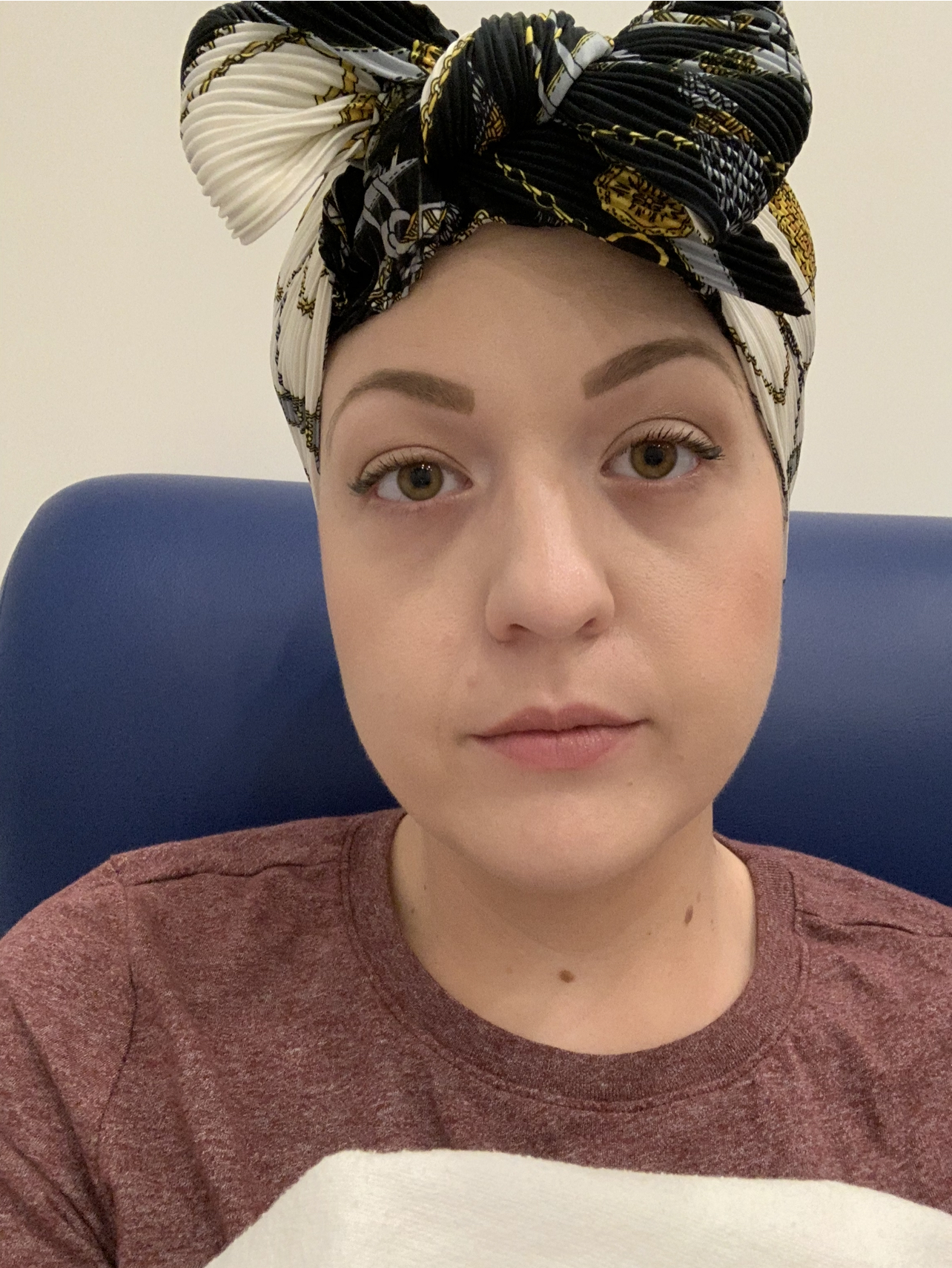
What were the effects of your allergic reaction to bleomycin?
Bleomycin is a very toxic chemo and it can cause lung damage. I already have asthma so [my doctor] said, “Let’s send you for a pulmonary function test.” I had one that’s part of what you do before chemo – pulmonary function and heart, MUGA scan. He had me go for a pulmonary function test after he determined that I was correct, that it was an allergic reaction. My pulmonary function had dropped 30 points. Thankfully, it has improved with time but that was so scary. I thought maybe I have fibrosis now. I didn’t know what the hell to think.
He just said, “Let’s get you started back up on those 3 remaining drugs. Hopefully, it works.” No discussion about what could be done differently or if there are any other alternatives. Nothing. Just, “We’ll remove it. I really don’t want to remove it because we really need to get you back into remission. If I didn’t think that you’d end up in the ICU, I would just keep you on it.” I said, “Okay, but I’m never taking that again. I was in the ICU for 3 days.”
Were there delays in your treatments?
My treatments did get delayed quite often because my blood counts were very slow to recover, but there was never a conversation about Neulasta. Not that I would love to take Neulasta. I never would because it’s awful. But at the same time, if you felt there was a serious delay in my treatment, you should be having these conversations with me.
The oncologist withheld important health information
Also, I want to tell people, it’s not normal to wait in a room for your oncologist for upwards of 2 to 3 hours because I also did that.
There was one time I got the scan where it said it was not clear after all the treatments. I had the scan and then had to wait for the results. [My doctor] also deliberately wouldn’t release any results to my chart because he knew I was going to look at them and want to know about it, which is normal but was not acceptable to him. So he would withhold them.
This time that I was waiting for my [results] to come, somebody released [the scan]. I saw it, called, and said, “I really need to come in. I’m freaking out. I’m trying to get back to my life, and here I see this scan.” He said, “Well, you have an appointment in a week.” I said, “I’m coming in. I don’t care what you have to do. I’ve waited up 3 hours for you one time. I’ll just wait in the waiting room.”
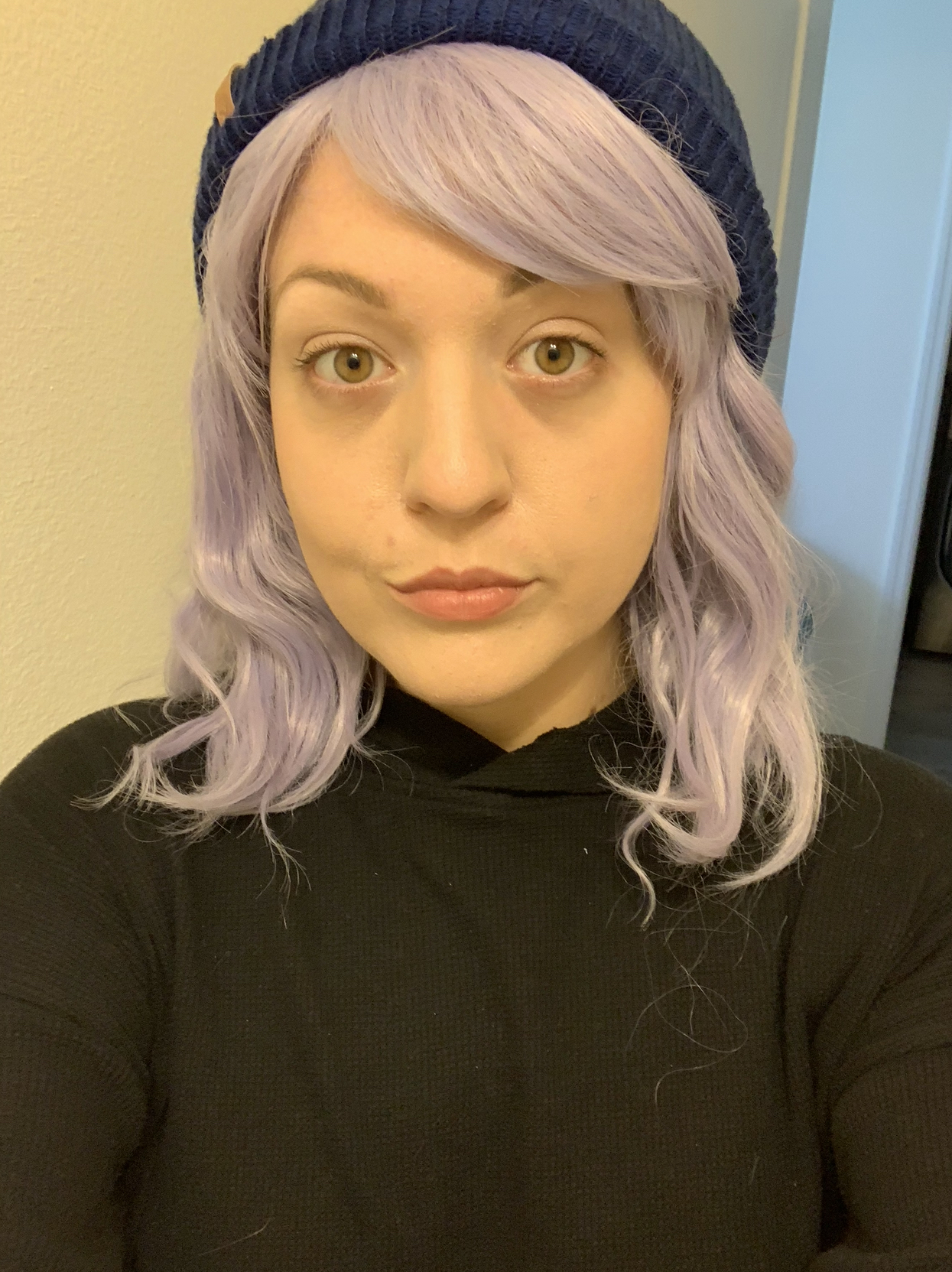
[My doctor] also deliberately wouldn’t release any results to my chart because he knew I was going to look at them and want to know about it, which is normal but was not acceptable to him. So he would withhold them.
Is it legal for doctors to withhold your health information?
There’s a law. It’s good and it’s bad. People sometimes get their results in the middle of a fast-food restaurant like me. At the same time, it is empowering to the patient because you can’t be manipulated in a way by not good health professionals, which is what he was doing.
How did you react to hearing you had cancer again?
To be honest, I never felt great about what he said to me that day about the scan. I’m one of those people that would try to put something bad that happened to me in the far reaches of my mind and just move on. That’s what I was trying to do, and that’s not a good way to deal with cancer.
Six weeks after chemo ended, I went right back to work so I was working again. I went to a different position. I tried to scale down. I went closer to home. I tried to make these changes so I could have a more peaceful life after all the stuff I had been through and I was feeling fine. I wasn’t working a lot like I was before and now I was fine.
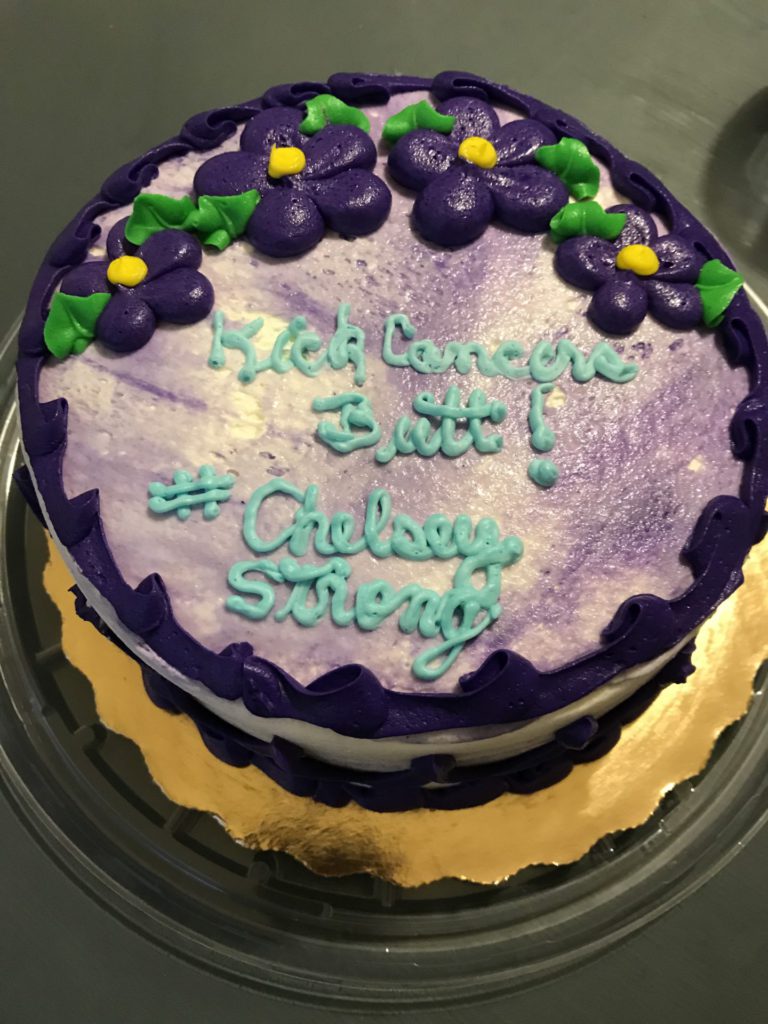
I kept feeling untrusting about what he had said. When I got that scan 3 months later and it showed that it had grown, I was like, “Oh, crap. I knew it.” I think I actually said those exact words. I knew it. I went in to see him and he said the tuberculosis thing again but I don’t know why because I never had any symptoms.
Why did your doctor think you had tuberculosis?
“I don’t get it. Why do you think [I have tuberculosis]?” I said. “I don’t have symptoms of tuberculosis. Where is this coming from?” He never really gave me any explanation about it. He got on his phone and said, “I’m going to call my friend, Dr. So-and-so. We’re probably gonna get a bronchoscopy and cut right here on your neck. It’s not good, but we’ll need to do that. He’s at the golf course right now.” I’m like, what is happening?
I ended up going to this guy a day or 2 later when he was back from his golf vacation and the guy was so unprofessional, just like this guy. It was like some weird network of referrals. I just didn’t feel good about it at all.
Getting a second opinion
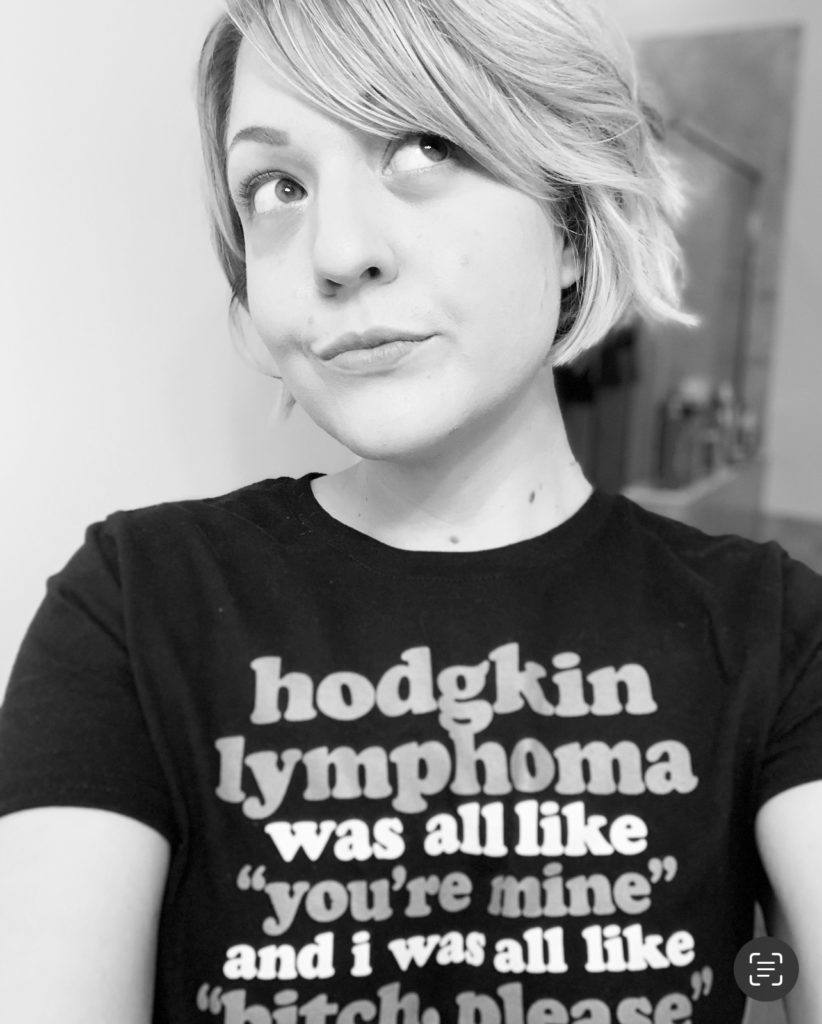
I got a second opinion from Mayo Clinic after I had the bad scan. The doctor at Mayo Clinic said, “Let’s give it a month and see if it grows anymore.” He wasn’t trying to take over everything. He was just a consultant and said, “You’ll be okay. If it still is cancer, you’ll be okay. Let’s pause on getting your neck cut open. Let’s just see.” I had another scan and it had grown more.
Describe what it was like to switch doctors
I felt like I was leaving a weird relationship. I ended up leaving the original oncologist without really telling them. I told them I was leaving, but didn’t say a lot because I felt like I was going to get gaslit into staying there. I went to Mayo Clinic full-time and my oncologist saved my life. His name is Dr. Ayala.
He looked me in the eyes, held my hand, and said, “You’re going to be okay. We’re going to get through this together. It’s okay.” Even at that point, he mentioned fertility before the transplant because I think I had gotten my menstrual cycle back, thankfully. He said, “If you want to take time to do this, I will wait for you. We will get through this together.” Just the kindest.
It was the most 2 worlds experience that I ever had in my life. Even now I tell them, though I probably could go to a different oncologist or go somewhere closer, I still drive 2 hours both ways to go see him. I always tell him, “I know you’re like the fanciest transplant guy here at Mayo Clinic, but please don’t ever get rid of me as a patient or move me to someone else because I just can’t tell you how much I love you and care for you and trust you.”
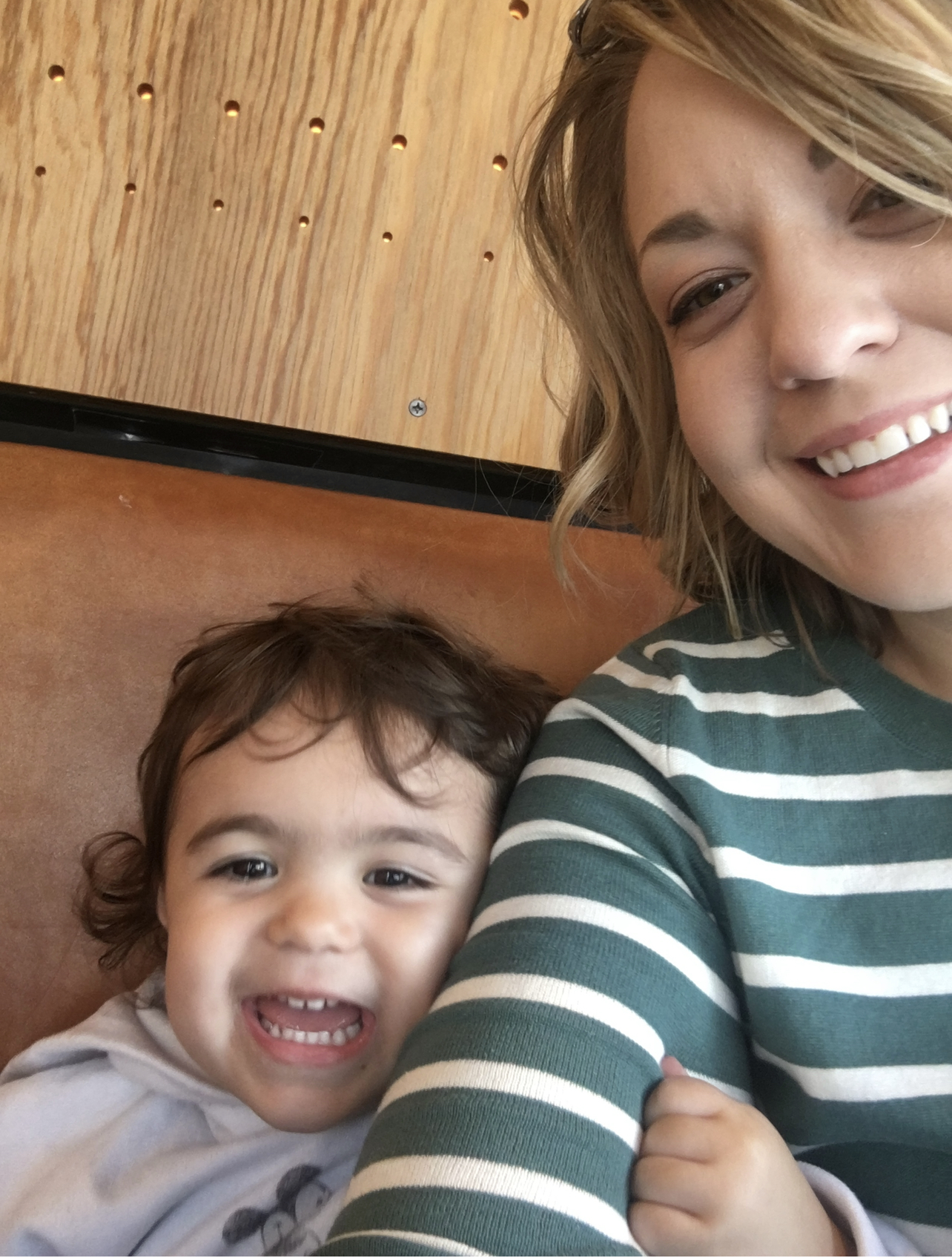
I didn’t have that when I got sick the first time. Even when I got bad news from this doctor, it was never doom and gloom. It was, “Okay, Chelsey. This was not what we expected, but let’s go on.” He explained all my options and gave me the power to make decisions. My daughter saw him recently. We went for my 3-year post-transplant and she said, “You’re the one that saved my mom’s life.”
I got so lucky. This guy is so busy. He’s one of these people that did research studies at MD Anderson and Moffitt. He had a cancellation on the day I ended up getting an appointment with him – a cancellation on a day he never normally works. That was the fate I was looking for. I met with him, he never rushed me. I understand delays happen. I would never fault somebody for that, but 3 hours I fault. He was always on time. He listened. I would ask questions about things I read online like what about this one treatment or what about that? And he would say, “This is what this is.” Maybe it didn’t even apply to me, but he would explain it to me and he would never make me feel bad for asking.
Finding a caring medical team
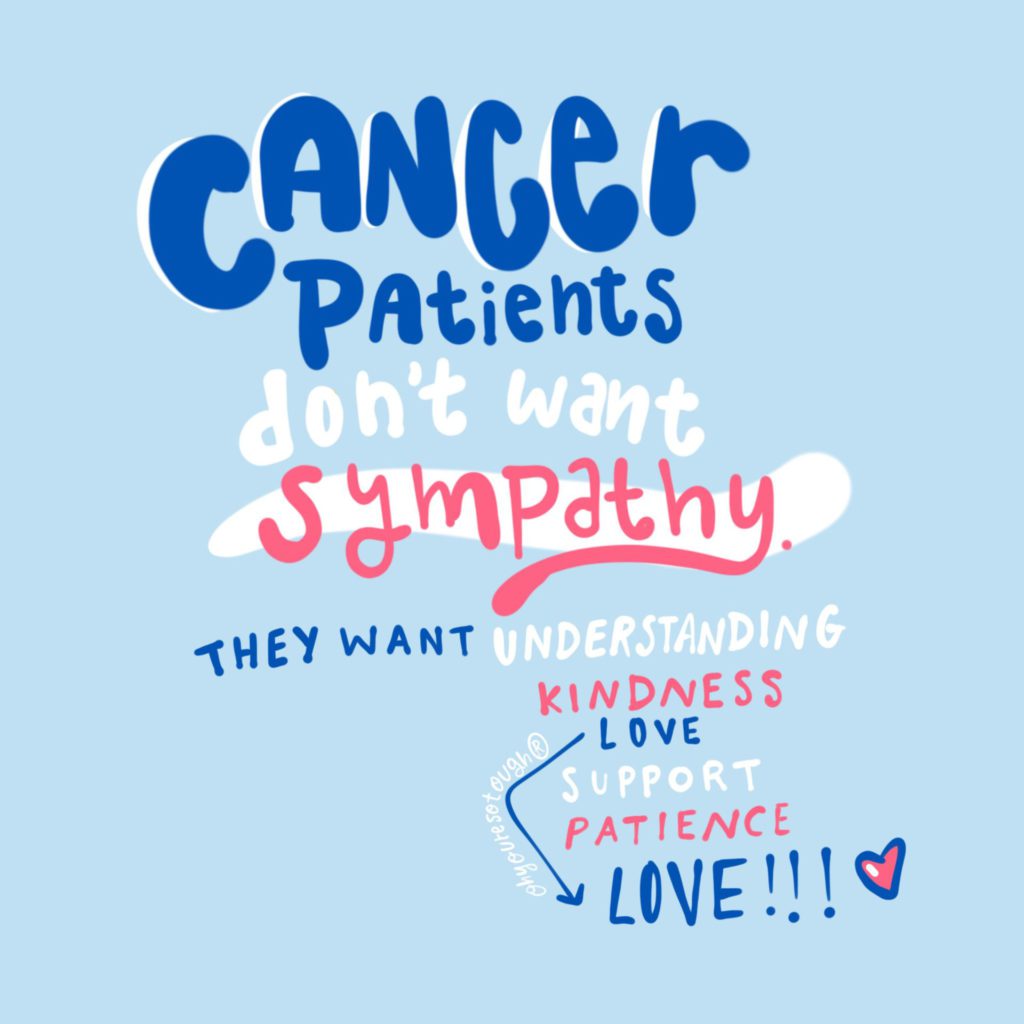
I’m not saying you have to go to Mayo Clinic. It just has to be somewhere that genuinely appreciates you as a person and understands that, just because your name is doctor and my name is patient, it doesn’t mean that my questions or opinions are any less. It should be a partnership.
I had to end up getting a chest biopsy to confirm that it was still Hodgkin’s through Mayo Clinic. The surgeon that I went to, compared to that guy who I just met with who tried to cut my neck off, told me all the things that I could expect. When he went in to do the biopsy, he recognized that it was cancer so he tried to take out as much as he could.
He came out and told my mom personally, “I’m sorry. It does look like it probably is cancer, but I took out as much as I could to give her the best chance.” My doctor told me I had cancer again, but then the surgeon called me and he said, “I just want to make sure you’re doing okay and I want to let you know, you can always send me a message. I’m happy to answer anything for you.” It was a night and day difference in care that you receive there.
I’m not saying you have to go to Mayo Clinic. It just has to be somewhere that genuinely appreciates you as a person and understands that, just because your name is doctor and my name is patient, it doesn’t mean that my questions or opinions are any less. It should be a partnership.
Chemotherapy & Transplant
Describe your experience with Adriamycin chemotherapy
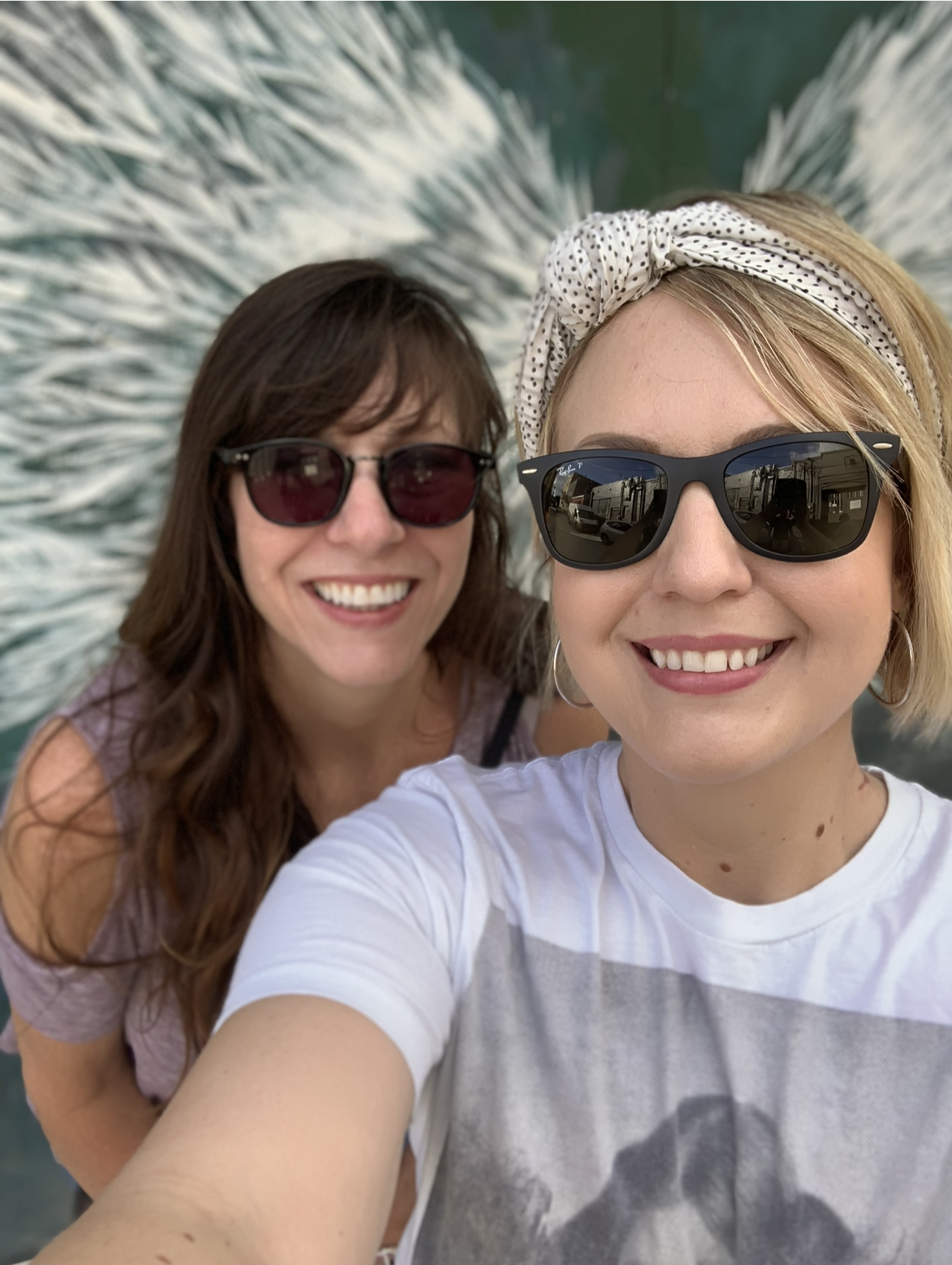
Adriamycin – or we call it ‘Red Devil,’ the ‘A drug’ – that one had a high incidence of mouth sores and mucositis. There was one nurse that worked there that got me through everything. I wouldn’t have been able to do it because I got anticipatory nausea, anxiety, everything. She held my hand and would say, “Look away.” She told me to always eat ice pops or ice during it so my mouth wouldn’t get like that. That really did help me with that portion of it. Also, I started hating water because I had to drink it to flush this out. I ended up getting sparkling water. That’s a good tip for somebody who does get tired of drinking water – get sparkling water. It was a different mouth feel.
Adriamycin, when you get it as a Hodgkin’s patient, it’s pushed to you. It’s another psychological thing. We’re seeing this person having all these gloves on, this suit on pushing this into you, and you’re like, “Yes, okay, hook me up to it.” [My nurse] was the only one that had to push it. She would say, “Look over here. What’s your daughter doing today?” And talk to me, which was wonderful.
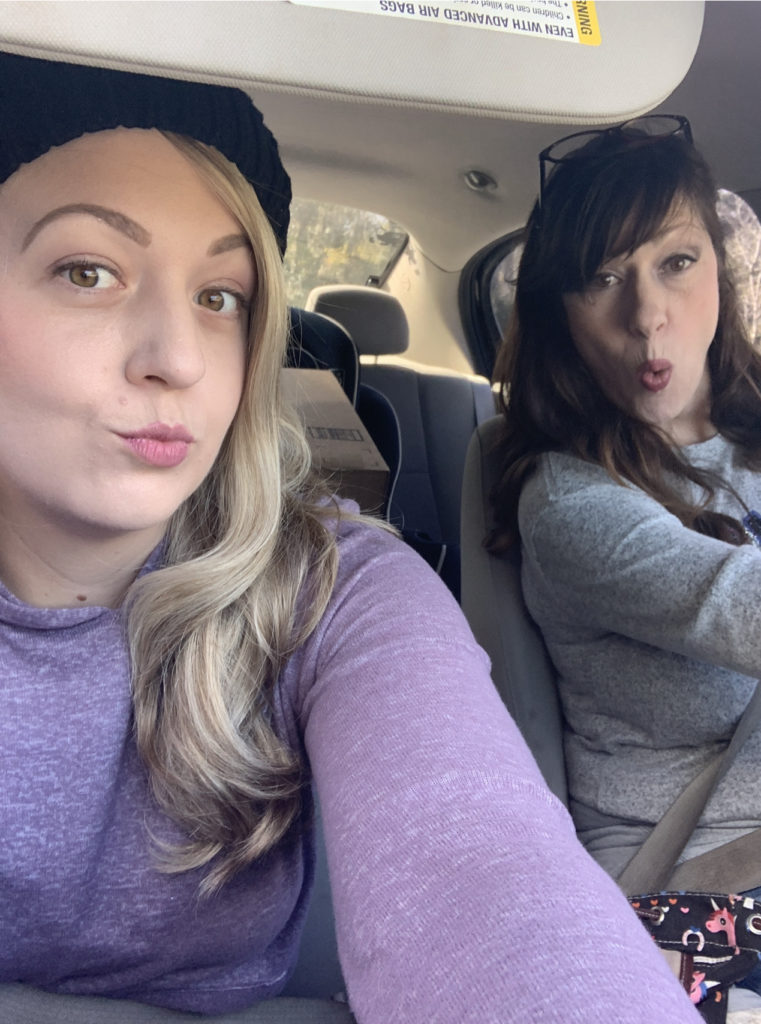
My mom went with me to most of the appointments. It’s never a great time, but we tried to be silly or eat snacks or do whatever we could do to get through it. Also, this chemo was in a big room with everyone that could see everyone. That was a lot for me. When I first walked in there, I was like, “Whoa.” When you’re getting chemo, you’re ill a lot of times during it so that was crazy to me, seeing everyone. It became like a little community, talking to all the people. Of course, there were no other young people but I made friends with the people.
Two treatments in, I was in the room and a lady started having a severe allergic reaction where she coded in front of us and had to get resuscitated. I found out later on that it was because they didn’t give her the pre-meds that they were supposed to. She ended up bringing her husband, who was like a CT person to every appointment and they would write down everything like, you didn’t give me these meds.
And this is the top brand of cancer center in Florida. They’re like a monopoly around here, so that tells you something.
When did you receive your first and second cancer diagnoses?
October 12th of 2018, I got the first one. October 12th of 2019, I got the second official diagnosis. So that day is just not a good day for me.
What was your experience with brentuximab?
There’s an immunotherapy that probably a lot of people with Hodgkin’s are familiar with called brentuximab. I heard about it, and it’s a way less harsh treatment than the normal ICE chemo that is offered. I asked about it and [my doctor] said, “That is a newer drug. It seems to have really good outcomes. If you want to try it, we can definitely try it.” I knew that the transplant was going to be really hard and really difficult. I said, “I’d really love to keep my hair a little longer and not have so many side effects.” Also with ICE, you have to be inpatient. Brentuximab, you can go for 2 hours, be done, and go back home.
We drove the 2 hours each way each time. We did 3 brentuximab treatments and we had a scan. I think it was a PET scan. It was early January of 2020 and it had progressed my cancer. I don’t know if it was the drug or it wasn’t working at all, but my cancer had progressed a lot at that time and that was the second time I felt like, I’m not going to make it. Like, this is really scaring me right now because although my scans have never been magical, clear unicorn scans, they’ve never been like this.
I expected them to say in this meeting, “We’re ready to go to transplant.” You have to get in remission before you can harvest your stem cells. I remember I sat in the parking lot and my mom had my daughter. I called my mom with my husband and I was crying. I said, “I just don’t think I’m going to make it, Mom. I’m sorry.”
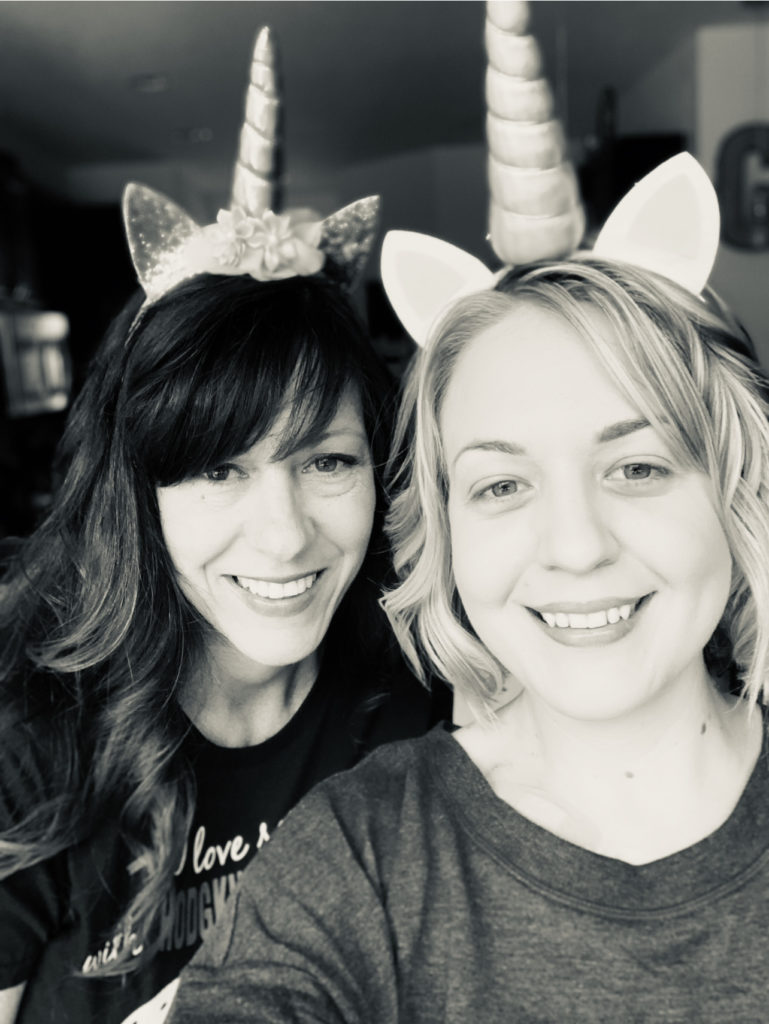
Attempting to get into remission with ICE chemotherapy
I ended up speaking with [my doctor], and he never gave up. He was always like, “Chelsey, it’s okay. We have other options. We have ICE. It’s been given for decades now. We’re going to get you in the hospital at the end of this week.” I was like, what? He said, “We’re going to need to get you in the hospital this week to start the treatments.” It was serious.
My husband was learning to play guitar during this time. He brought his guitar into the hospital and we were in there for 3 days straight getting chemo and he was playing the guitar for the nurses. I remember that as a really sad time, but also a fond memory because we were in a place that we were being cared for.
I had 2 cycles of ICE. I remember the day after I got out, my friend was really wanting me to go to their wedding so I went to their wedding. Why? I don’t know. I could barely stand. I was completely bald. I had a wig on.
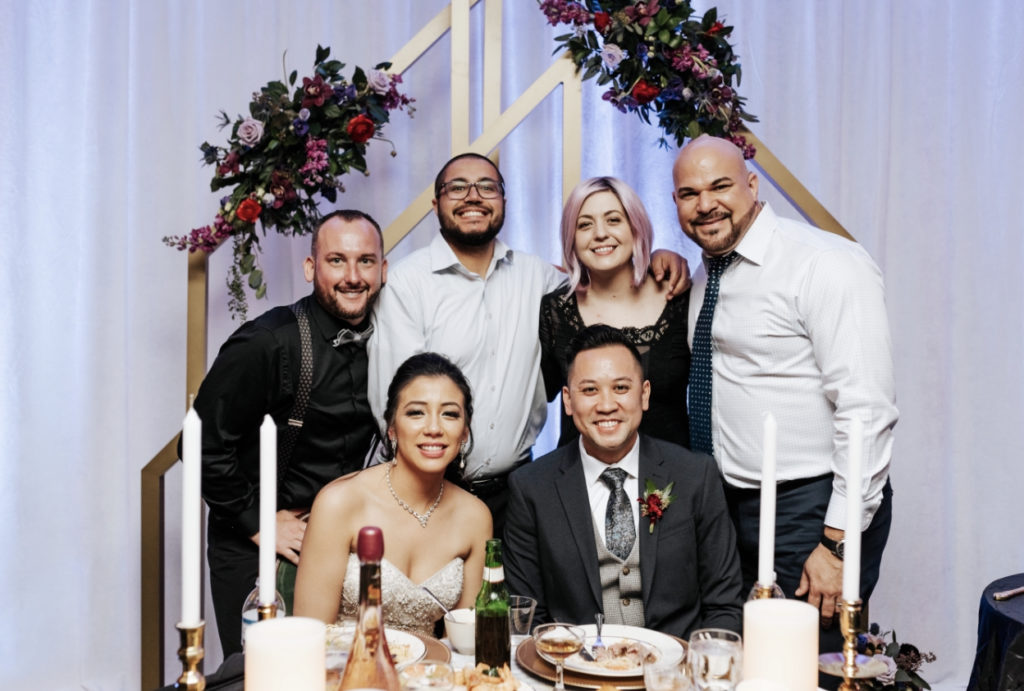
Preparing for a stem cell transplant
I had a scan after. It was a 2-week delay at the end of the last cycle and it showed that it was pretty clear. Not all the way clear, which I was scared of because I read if you harvest your stem cells when it’s not clear, it’s not going to work. [My doctor] said, “I’m pretty sure your scan is clear for the most part. It’s just that there are a couple of things lining up. We think we should go now.” I said, “Okay, let’s go now.” So we started.
I had to get a central line placed, and then I went for stem cell collection. At the time, my mom went up with me because my husband was still trying to work and had our small daughter.
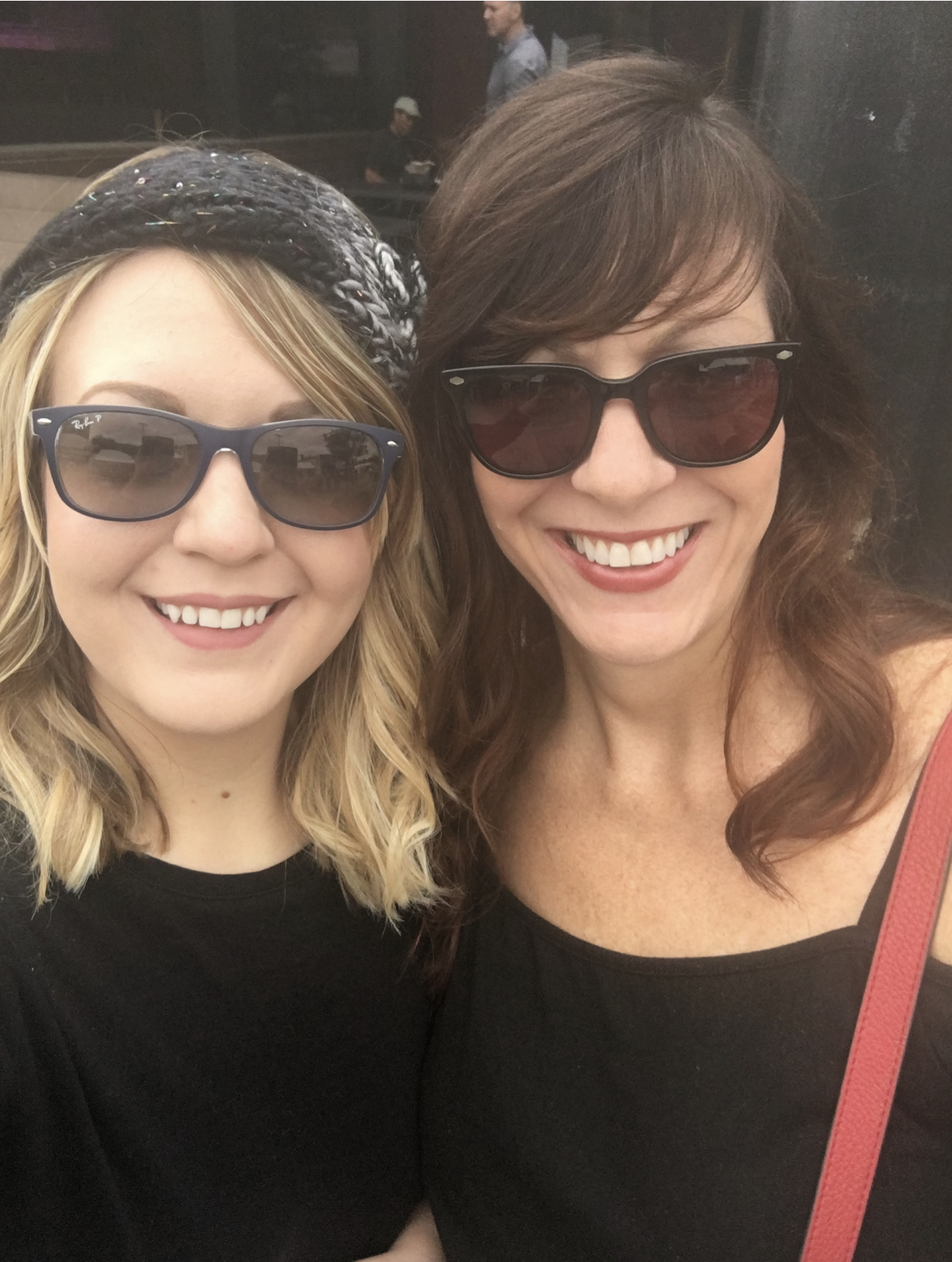
COVID caused unexpected issues
My mom and I were at the Hope Lodge through the American Cancer Society near Mayo Clinic getting my stem cells taken. We got the stem cells harvested and went home for the weekend in anticipation for the following week to get admitted to the hospital to start the transplant. Then Florida shut down completely for COVID and it was over the weekend. The Hope Lodge called and said, “Sorry, we have to shut down everything. We don’t want to be like Wuhan, China.” It was so abrupt. There were no resources, and there was nothing offered.
My plan was to stay there because I didn’t live nearby, and to live there to recover from the transplant. My husband and I found a kind lady on Airbnb who I had to end up paying like $5,000 out of money we didn’t have. Thank God I had a Go-Fund-Me that had some money. We had to rent her house for a month and a half.
They were shutting down Airbnb. They didn’t want anybody renting anything. I couldn’t get the transplant if I couldn’t stay close by, so I had to have something. She found out why I needed it and said, “I’m not canceling this. You can stay there.” She actually ended up giving me some money back because she felt so awful and she was the kindest sweetheart. I’ve never met her. I only talked to her through there.
[The hospital] kept calling me and saying, “We’re still trying to see if we can get your husband to come in with you.” Normally the caretaker can stay with you in the hospital. I said, “If he can’t stay with me, there’s no way I can do this. I’m not strong enough on my own.” He was the last one they allowed to come in, which I thank the universe for.
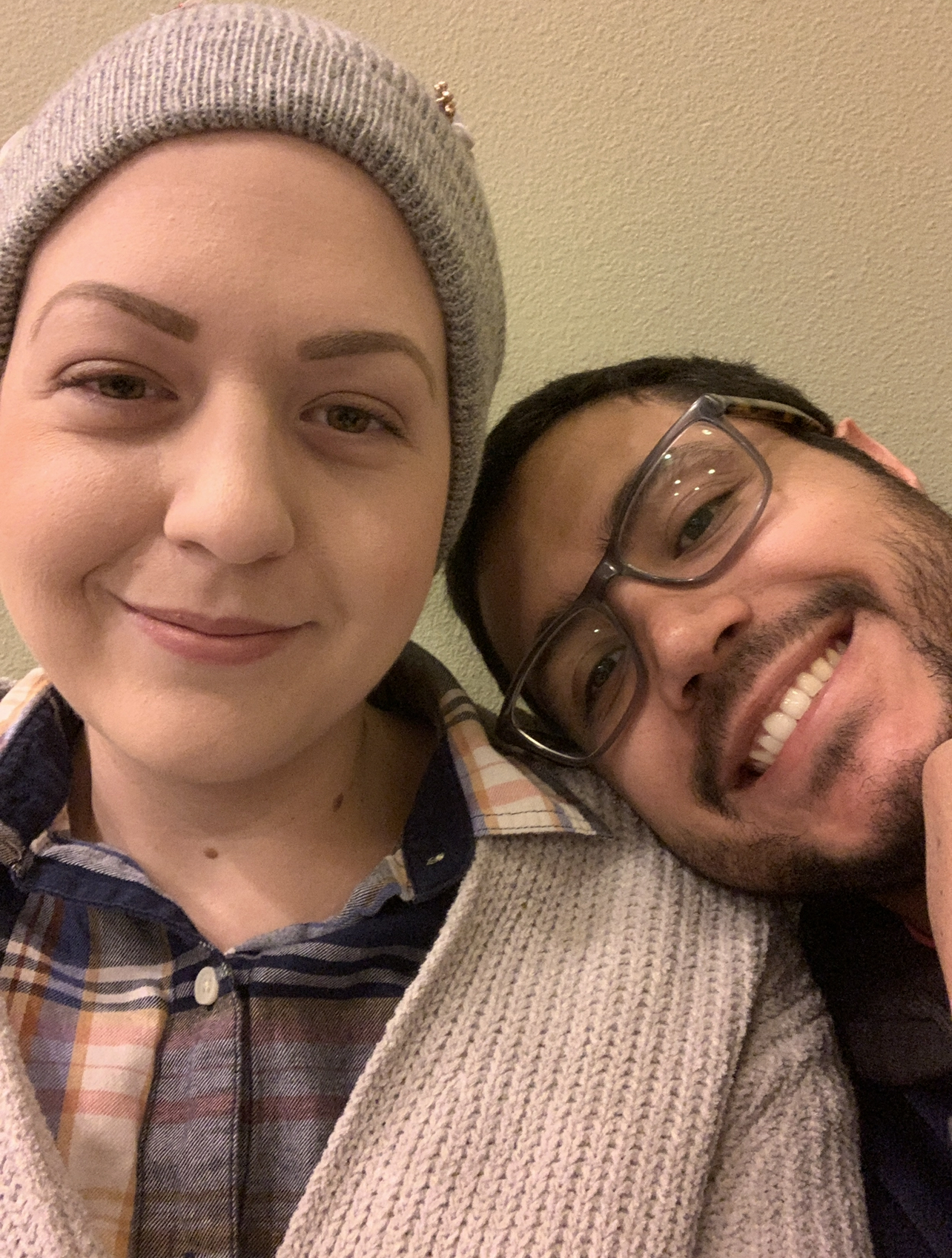
I know there’s people who have gone through their entire transplant alone, and I can’t even imagine how they did it. But it wasn’t easy. Things were shut down. He was arguing with security. The nurses at one point came down to the security to say he can come. They were arguing with him, but that was my reality.
I went to a wedding in March before corona was a big thing. I just got out of the hospital with no immune system on ICE chemo at a wedding. Those are super spreading events, now we know that. Nobody knew that and didn’t wear masks. Nobody was wearing masks. When you wore a mask around that time, people were staring at you like, what’s wrong with you?
Describe what a stem cell transplant is
There are 2 types of transplants. Stem cell transplants or they’re called bone marrow transplants. There’s autologous and allogenic. One is using your own stem cells. That’s the one that they try most often and that’s what I had. They took my stem cells out. It was in this big machine that looks like a tape player but is ginormous, and you sit there and it cycles. I don’t know how it works, but it takes out your stem cells that are good in the time you’re in remission and it freezes them and then you have to be in the hospital.
They give you a week-long of high-intensity chemo that kills everything in your body. It kills it to the point where your immunizations as a kid get deleted out of your body and you have to re-inoculate it later on. You do that for a week and they give you your cells back to say, here’s a restart. Like if you put a new software or update your computer, that’s what this was.
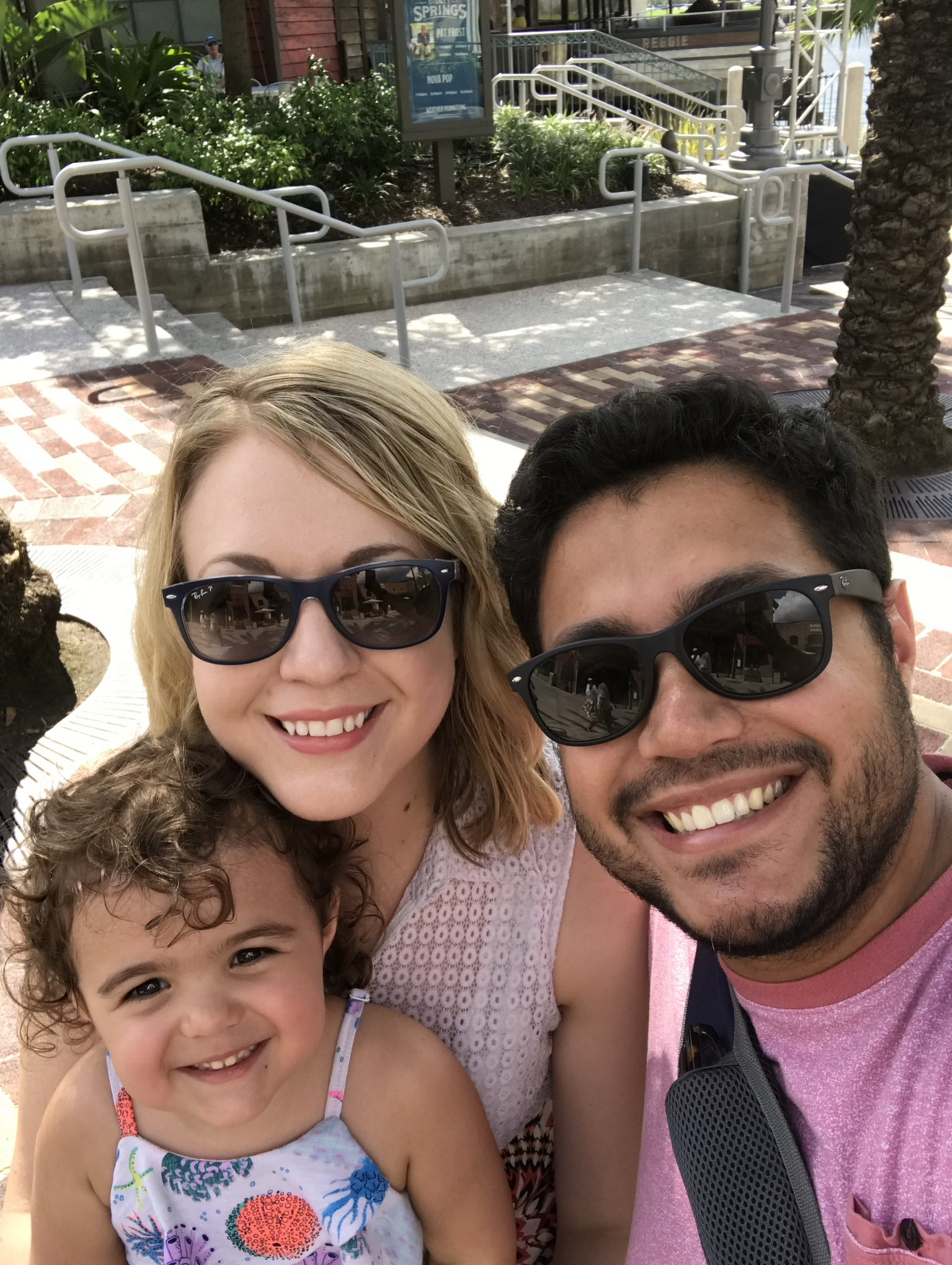
Then your body has to engraft with the stem cells. When it’s your own, it’s a lot easier. When it’s a donor, even if they’re a match to you, you can have major graft versus host disease. Think about getting a liver transplant. Your body can reject it. That’s essentially what it is.
Then it remakes your immune system and your bone marrow to healthy bone marrow, hopefully without the cancer being anywhere in your blood. Because with blood cancer, you can’t just cut it out. It’s your blood. So it’s a very strange cancer in a lot of ways.
I was so confused when I first started researching Hodgkin’s. When I was first getting it, I was like, what is this? I don’t ever want to get it.
How stem cell donors can save lives
If anybody’s watching this, especially people of color, if you have it in your heart, you can – through Be the Match – swab the inside of your mouth and send it in. It’s very easy and if you do match with people anywhere around the world, you can be a stem cell donor. It’s not a major procedure for you, but you could truly save someone’s life.
I know so many people who have done that. They’ve gotten donors from Germany. You can also check your family members. Sometimes people don’t have siblings or people that are willing to do it, so lovely strangers in the world can easily save someone’s life and especially people of color. There are not enough donors who match with people of color.
What was the outcome of your stem cell transplant?
I got to go home about 6 weeks after I had my transplant. It was still in the middle of a pandemic, so I had no immune system. I just was at home and my daughter couldn’t go to school. My oncologist said it wasn’t a good idea. She was in preschool, but still, she couldn’t go. So I was just at home with her and my husband trying to recover from this major thing.
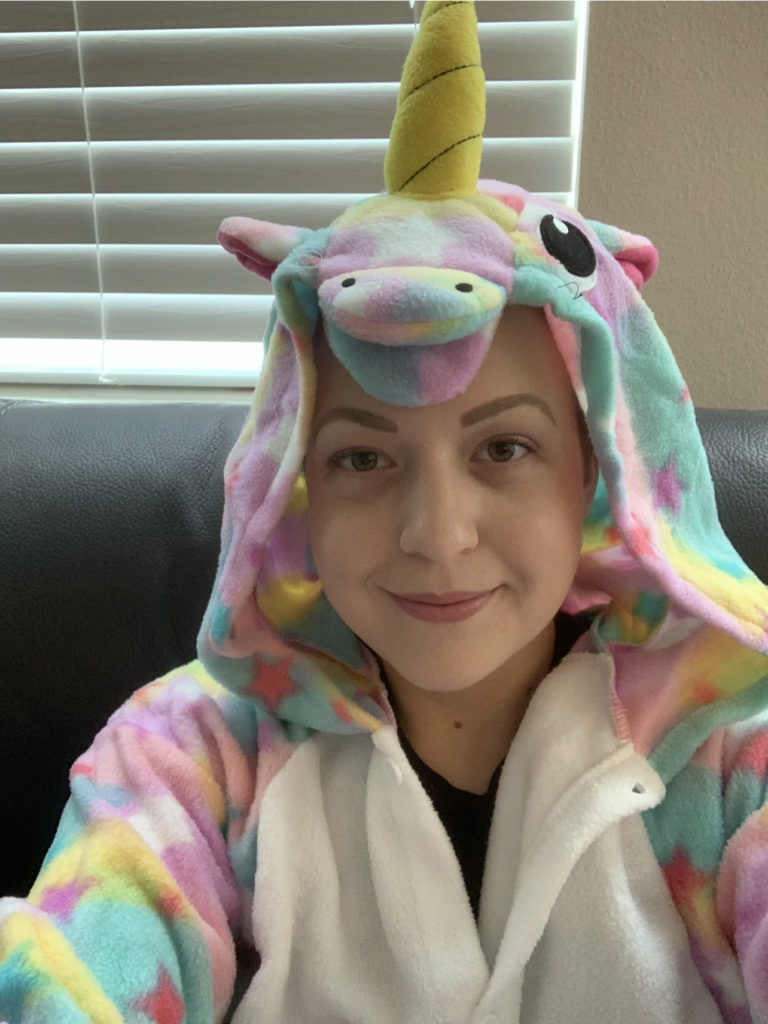
The outcome of the stem cell transplant is that I did go into remission and I have remained in remission for 3 years – knock on wood. I don’t get scans anymore. I graduated from scans about a year ago, which is really scary to me, but also exciting.
I should mention that if you do get a transplant, most often you can get maintenance chemo which is the brentuximab immunotherapy. They want to give it to you for a year afterward like a little insurance policy. Since it didn’t work for me, I couldn’t get anything. It was a blessing and I’m glad that I remained in remission, but also it was scary because I was like, most people have this extra little something to make sure that they’re okay but I didn’t. But I’m so grateful that I was able to even get the transplant in the middle of all of that.
Survivorship
Describe finishing cancer treatments
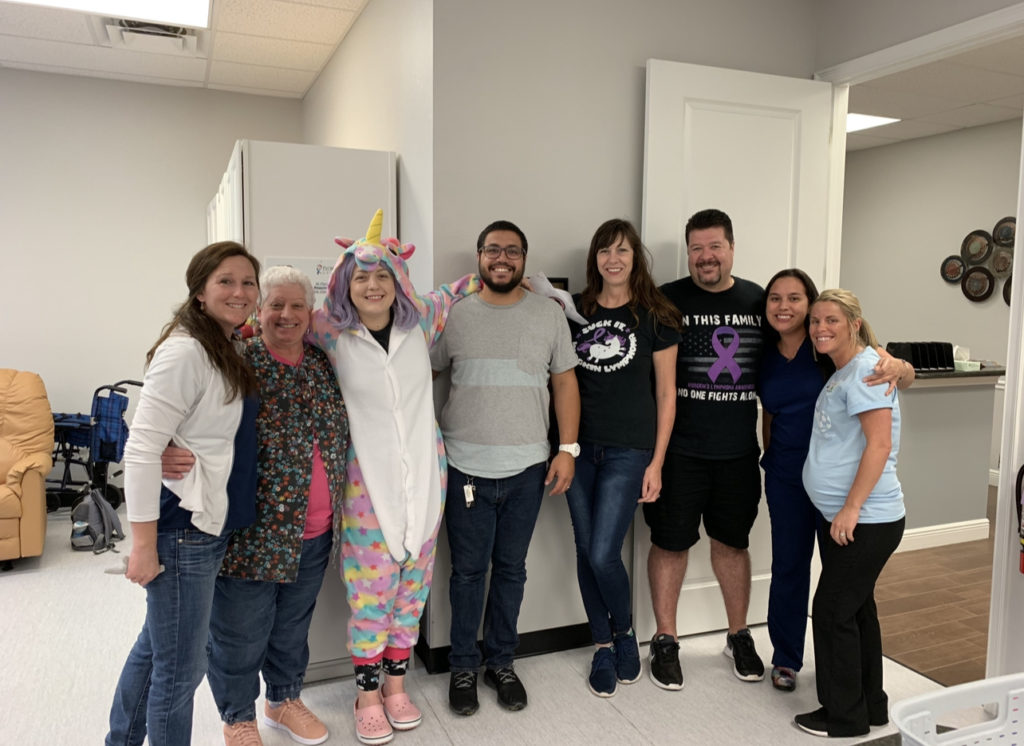
I did 12 total treatments, so 6 cycles. 3 or 4 were with the full ABVD. It must have been 5 treatments in total. On the sixth one, they took me off of it so I ended up finishing. It was as fine as chemo could be. I rang the bell. I had a unicorn onesie on and a purple wig, like that’s gonna be behind me.
I had a follow-up scan a month post-chemo to let everything settle down and on my scan, there were still things lining up. [My doctor] said, “I think that’s just residual swelling, not residual active disease but there could be necrotic things there.” I was like, okay. I just didn’t want to be a cancer patient anymore. I wanted to be healthy and go on with my life so I believed. Although, I always had this thing in my head that was like, is it a little sus?
He said, “See you in 3 months.” Then I had another scan that showed that it was growing. He came up with a tuberculosis theory somehow, although I had no symptoms of that. It was really difficult.
How did you react to finding out your cancer returned?
It was a weird time for me. I was working, but I had taken a step back. A lot of my identity has been tied to working and my career. I think a lot of this generation is like that. I felt less than that I had to take a lesser job when I had worked so hard to get the other job.
Right around the time that I realized I was sick again, I was about to apply to the higher job that was very stressful, so it was really weird. I had to call the [staffing agent] and say, “Either I have cancer or I don’t. If I don’t, I’ll be there. If I do, I don’t know.” When I actually got the diagnosis, it was like reality slapped me in the face. Holy cow. I’m not just packing it back in the recesses of my head – I got cancer again.
I’ll never forget having to tell my daughter that I had cancer again. I didn’t know how to do that because so much of my family’s life had been disrupted because of my cancer. I know that this is not my fault, I didn’t ask for cancer, but you can’t help but feel like, “Oh my God, I have to put this on my husband again, put this on my mom, put this on my daughter, put this on everyone.” This is the first time I thought, maybe I’m not going to make it.
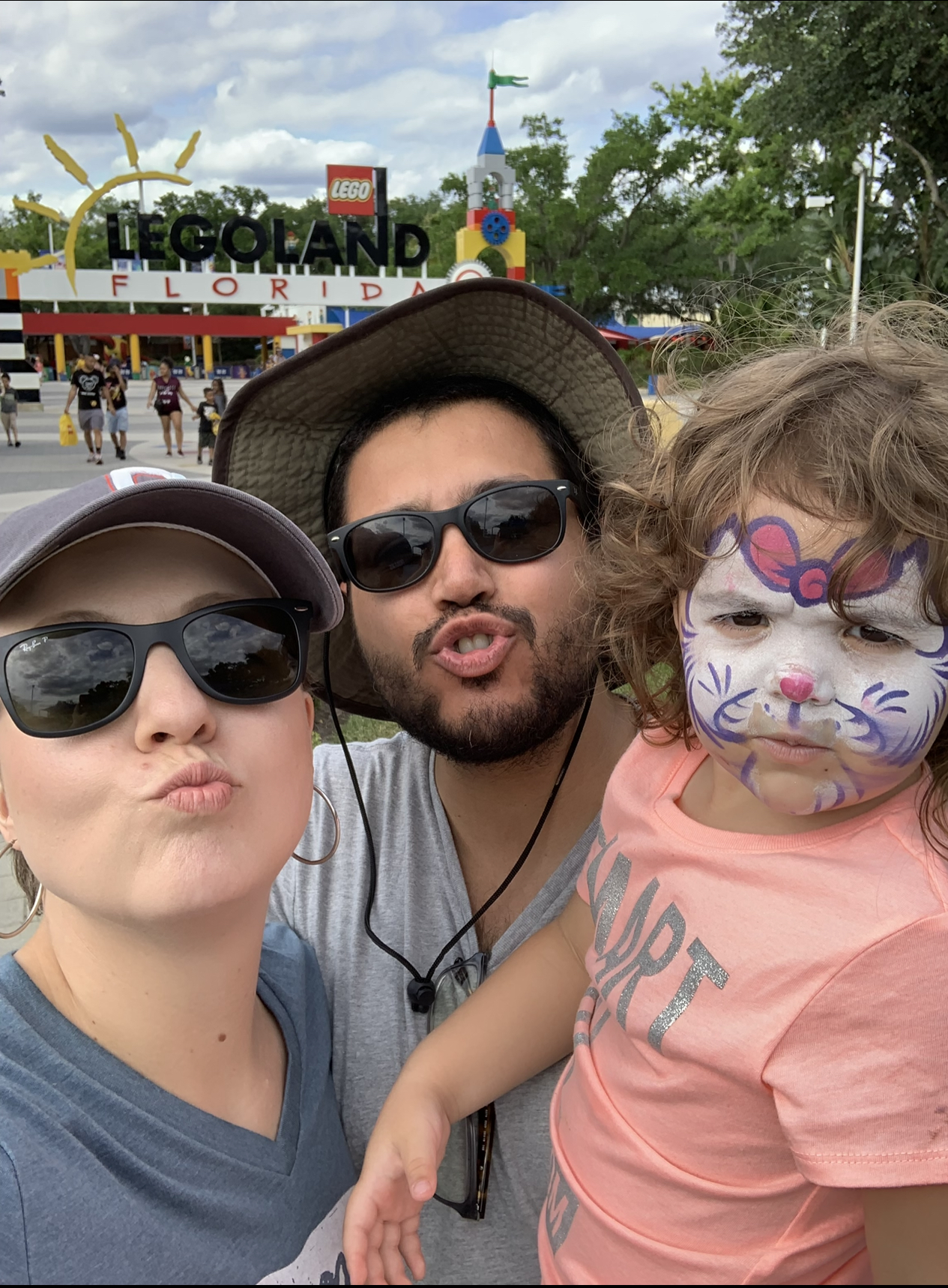
I just felt alone. Really lonely. I didn’t have any cancer friends. I’d never seen another young person at the cancer center. I didn’t have anyone to talk to about the way that it felt to relapse.
How did you start sharing your cancer story?
I tell people that this is a normal way to feel when you relapse. When you have cancer and you get in remission, there’s always a little cancer monster watching you like, “I can come back anytime. I might come back,” in your head. When I relapsed, it was a weird feeling of “Okay, I can stop watching my back now. The monster already caught me.” That’s how I started sharing online.
I had a YouTube channel a long time ago. It was nothing to do with cancer, but I remember I parked in the TJ Maxx parking lot near my house and I turned on the camera and said, “Hey, it’s been 5 years since I’ve posted anything on here, but I have cancer” and I started sharing my story of the things that have happened.
I started documenting. When my hair started falling out, I pulled it out on camera and I showed people what it looked like because I couldn’t find those things. I thought, at least there could be something for somebody else to help them not feel like I’ve felt this whole time.
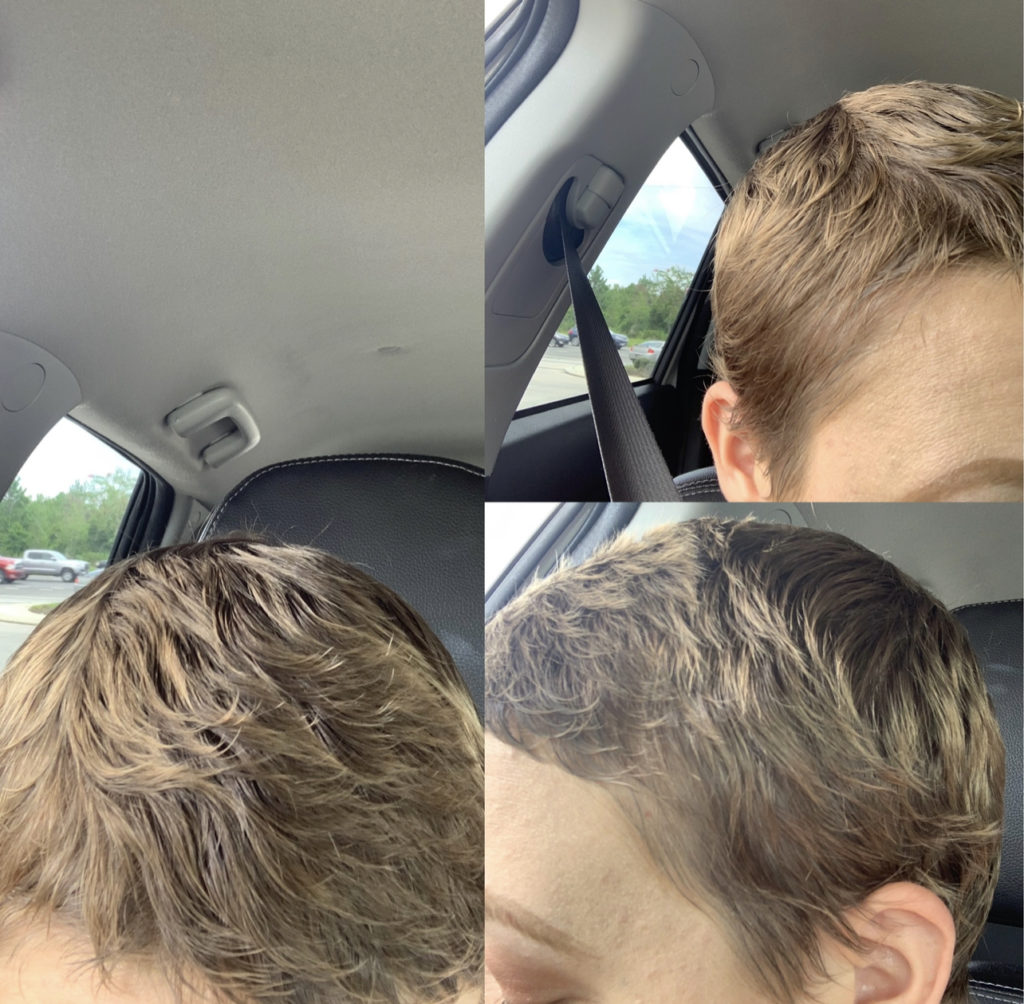
What has helped you overcome the pressure of fulfilling people’s idea of cancer patients?
I want to tell people that no matter what age you are, the feelings that you have are valid. They are authentic.
Finding a community that can validate the way that I feel. I feel very pressured to be the cancer patient that you see in the media. A Walk to Remember or whatever other cancer movie [depicts] a very put-together, brave, strong person. That’s what everyone says.
I’ve had people tell me when I was just going through chemo, “You’re such an inspiration.” I always wanted to say, “What am I inspiring you to do? Not die? Because that’s what I’m trying to do.” I know people mean well, but I think that it’s important to say, even if people mean well, you still can be saying the wrong thing. When you put pressure on people, especially younger people who are very goal-oriented, type A, career-driven…It’s like I’m driven to be all these things and you’re saying there’s no space for me to be authentic. I didn’t feel like I could say this really sucks.
There was a Facebook group that was set up with my coworkers and some friends to give updates about me, and it was done with genuine love and positive intent to say here’s a place you can update people. But it felt less like it was to update and more like it was to report on the 5:00 news and a traffic jam. There were grief tourists watching and people I’ve never talked to and people who didn’t talk to me before.
I think one time I put “This sucks,” or something and somebody said, “You can’t say that. Other people have it worse. Everything happens for a reason.” Now I would just scream at them, “What was the reason?” like Cardi B. There’s no reason for this.
I want to tell people that no matter what age you are, the feelings that you have are valid. They are authentic. People stop being your friend just because you have cancer and it’s not because of you. This happens a lot across almost the whole cancer community, but nobody ever wants to talk about it because it feels shameful. You wonder, what did I do? All I did was get sick and you guys just walked away from me.
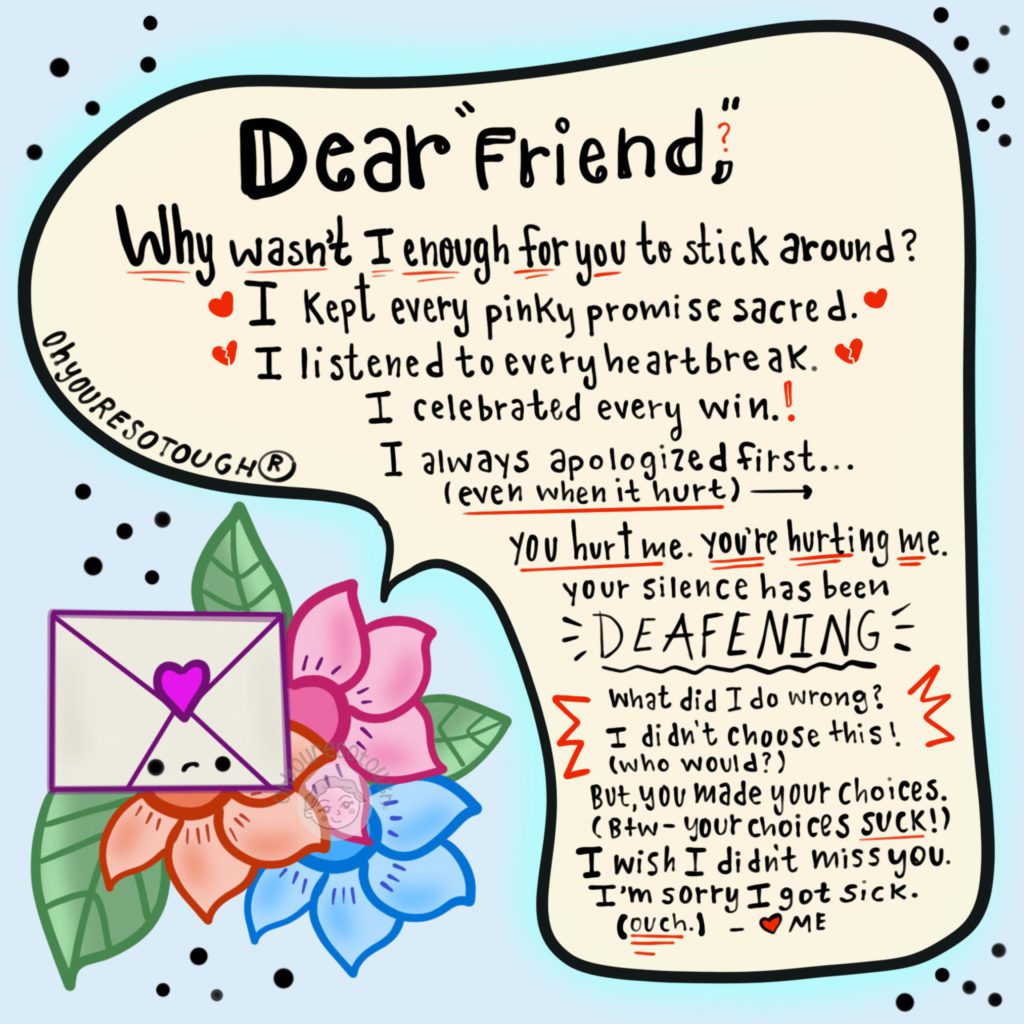
Especially when I relapsed. I felt like everyone was sick of hearing about me being sick. Who do you think is the most sick of me being sick? It’s me. It’s important too, as a caregiver or as a loved one of somebody, to leave space for authenticity and for hard things. Even if you don’t know what to say, you can listen. You don’t need to say, “You got this” or “Everything happens for a reason.” It doesn’t help anything. Say, “This sucks. I love you and this really sucks.” I wish I could have heard that at some point because I would have felt so validated.
What did it feel like to overcome cancer?
Survivorship I felt in 2 phases. There was one where it was very temporary when I was in that limbo. I went back to work and tried to forget about it. There were no discussions about mental health during my oncology appointments with the first doctor, no surprise, other than here’s an Ativan prescription. See you in 3 months. There was no discussion about, what does my life look like long term. What do I need to follow up on? Nothing. I took the approach of, I guess I’m just moving on.
I remember driving home from work one day and I got hit over the head with, “You had cancer.” I had a little bit of a breakdown during that time. I remember telling my husband I’m not doing well. The fact that I had cancer, I’m coming out of fight or flight and I’m realizing everything that I’ve gone through. Especially all the things with the doctor and the hospitalizations and all of the gaslighting. It started hitting me.
And where did I have to go? I didn’t have anywhere to go other than calling there. So I called and said I need help. I filled out depression questionnaires and I marked off all of the things that said I was depressed and they didn’t say anything about it. They ended up calling in a prescription for an antidepressant and saying, ”You should really follow up with your PCP.” Nothing more than that.
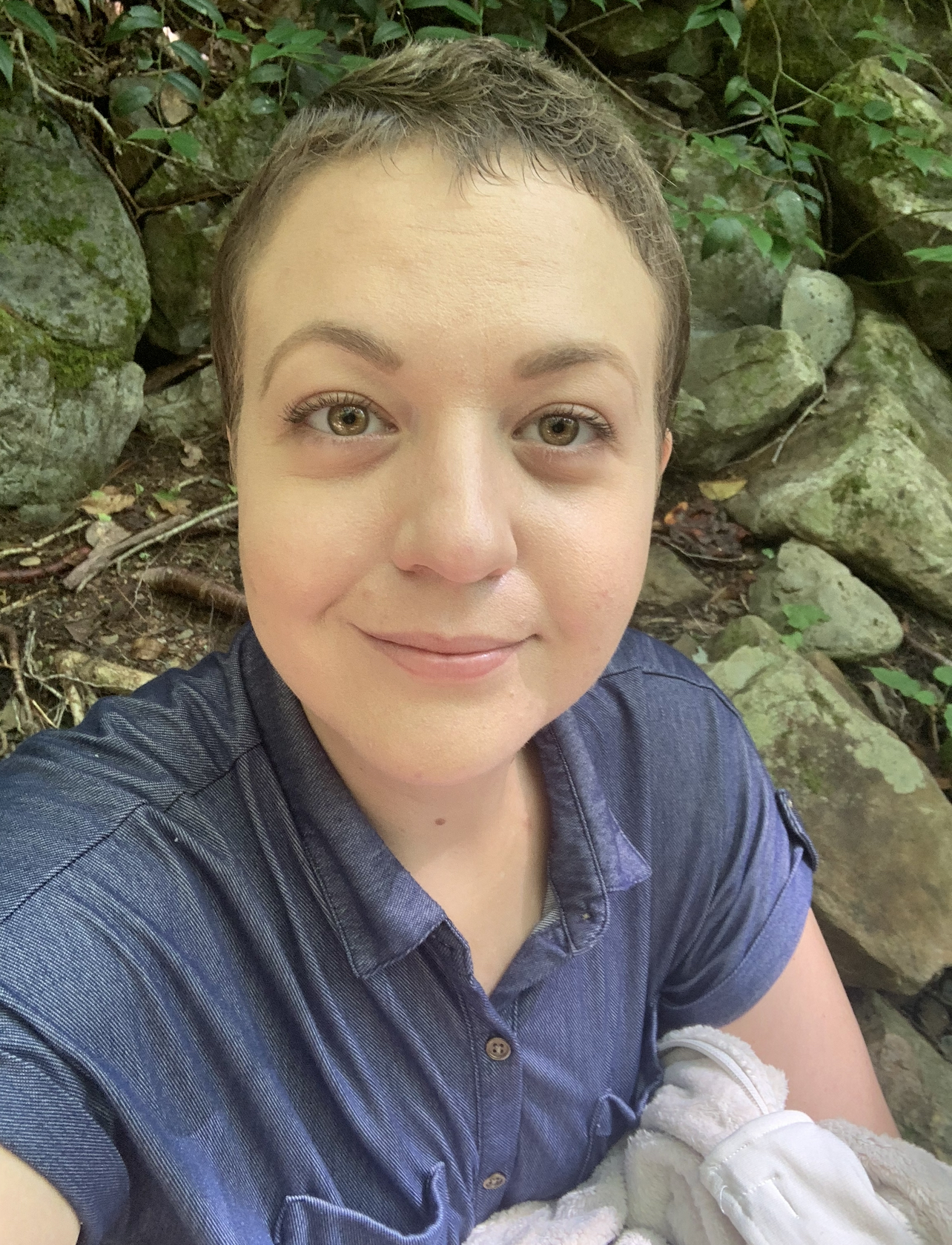
What inspired you to use artwork to express your cancer journey?
I definitely think that anybody listening, you need to be actively taking care of your mental health during treatment and after. It’s not a one-time thing. It’s a constant struggle. What helped me start to heal was being honest about everything that I was feeling. That’s when I turned to doing artwork. I was home with my daughter, not really doing much other than trying to heal. I’ve always been a creative person, but I worked at an insurance company. We all fall into these careers sometimes where we’re like, “How did we get here? But it makes money, so I’m going to stay.” You’re kind of stuck.
I bought an Apple pencil and started drawing. The first thing I ever drew was a lymph node – my characterization of one – and I put, “My lymph nodes are A-holes” because that’s how I felt about it. They’re not cool nice little guys that help you ward off infections, they’re A-holes. They tried to kill me 2 times. I put it out there. I also put out a graphic about lymphoma symptoms because I thought, if I show this little guy and I make it colorful and cute, maybe it will catch people’s attention and a young person might see it.
I started sharing on the Internet and oversharing like I always do. I always say oversharing is caring. That’s my brand now. I’m like, here’s everything about me. Here’s all the ugly things that have happened to me. Here’s how I feel. People stopped being my friend because I had cancer. Just being very vulnerable because I felt like that was the only way I could be. I couldn’t be the brave, strong person on the billboard ringing the bell. I just wasn’t that.
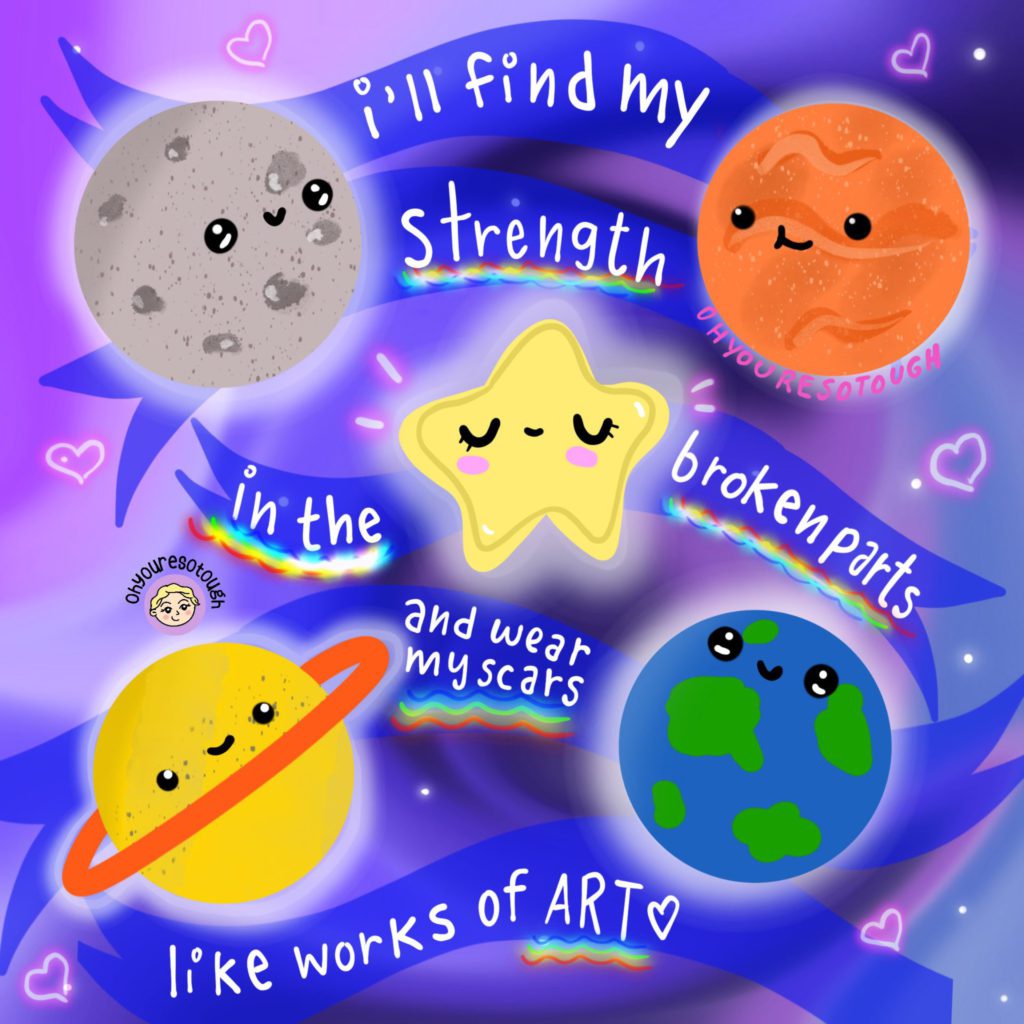
You need to be actively taking care of your mental health during treatment and after. It’s not a one-time thing. It’s a constant struggle. What helped me start to heal was being honest about everything that I was feeling.
Building a cancer community through social media
My Instagram, what it is now, @ohyouresotough was just my Instagram. It had nothing to do with anything I have now. I just started posting there and I was like, I don’t know if anybody will see it ever, but I’m gonna put it out there. Quickly people started responding, “What, you feel like this? I feel like this.” And I’m like, you do?
I started finding friends in the cancer community, not just who have Hodgkin’s but have all sorts of cancer who are like, “Thank you for saying this.” I realized there was a lot that cancer patients want to say but were afraid of the consequences in their own families or whatever it might be, or uncomfortable conversations. I said, “I think there’s a way for me to heal and also heal others.”
I always say, post what I say and if somebody gets mad, just blame it on me. You don’t have to take responsibility or accountability for what you’re posting because it came from me. That’s how my little art series started with anonymous confessions about all sorts of things about cancer. Sometimes people don’t need a whole lot. They just need somewhere safe to say what’s happened to them and a way to put it out there, so that’s what I started doing, drawing little funny cartoons about things that had happened. They’re serious too and hard.
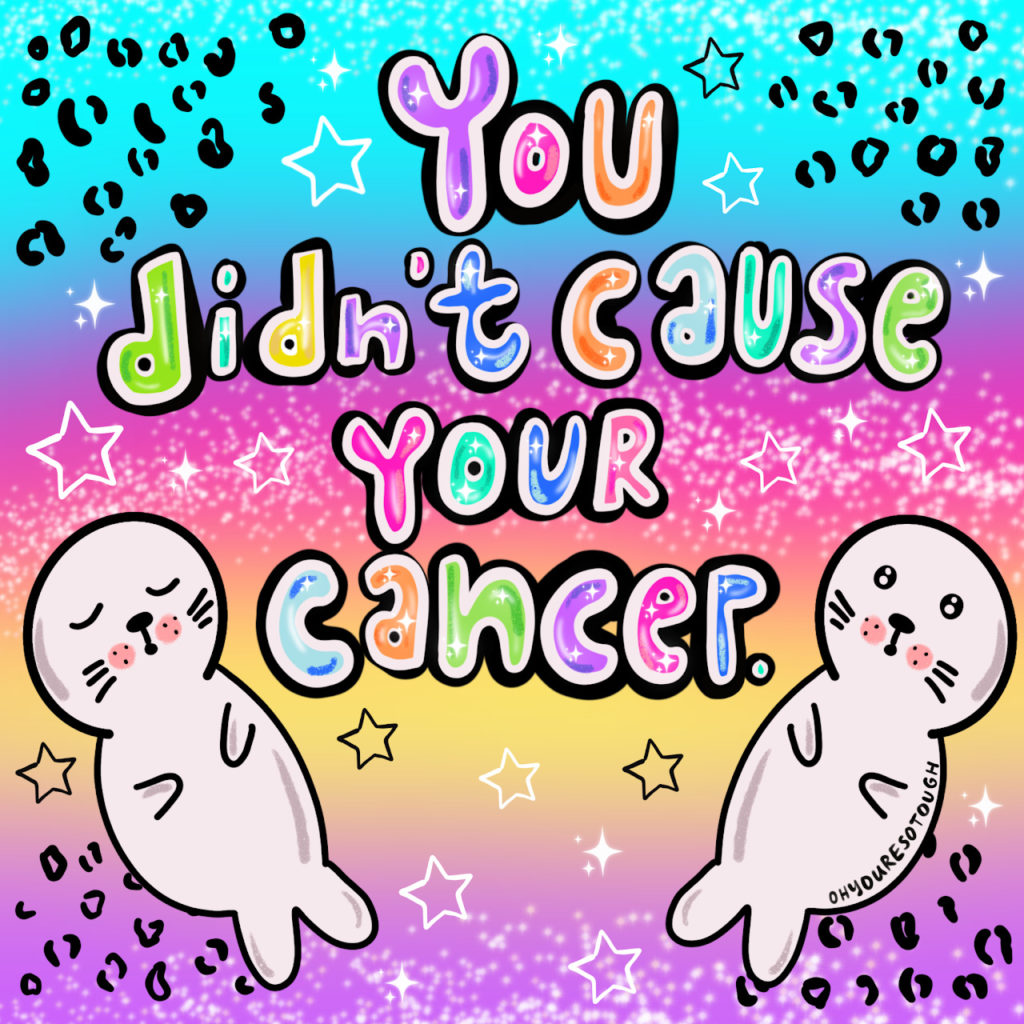
One time I said, “I don’t know, God. Should I keep doing this? A lot of submissions are really hard. They’re really tough to read. They’re really sad sometimes.” And so many people said, “No, you need to keep doing this because although it might be hard or difficult or sad or uncomfortable to read sometimes, it’s the reality and it’s made people feel not alone.” That’s the main theme of my cancer was I was alone. I have my husband, my daughter, and my mom, but I was alone in the cancer reality.
It’s amazing to me and it always brings tears to my eyes whenever I hear somebody say, “Reading your page validated me so much. Thank you for seeing me.” I always say to my community, “Thank you for seeing me because nobody ever saw me.”
What was the inspiration behind your first book?
The first time I lost my hair, it was very short. I buzzed it off because it was all coming out, but I was never starkly bald. The second time when I had ICE, your hair just comes out completely. I knew that my daughter was probably going to be like, whoa! She was so young.
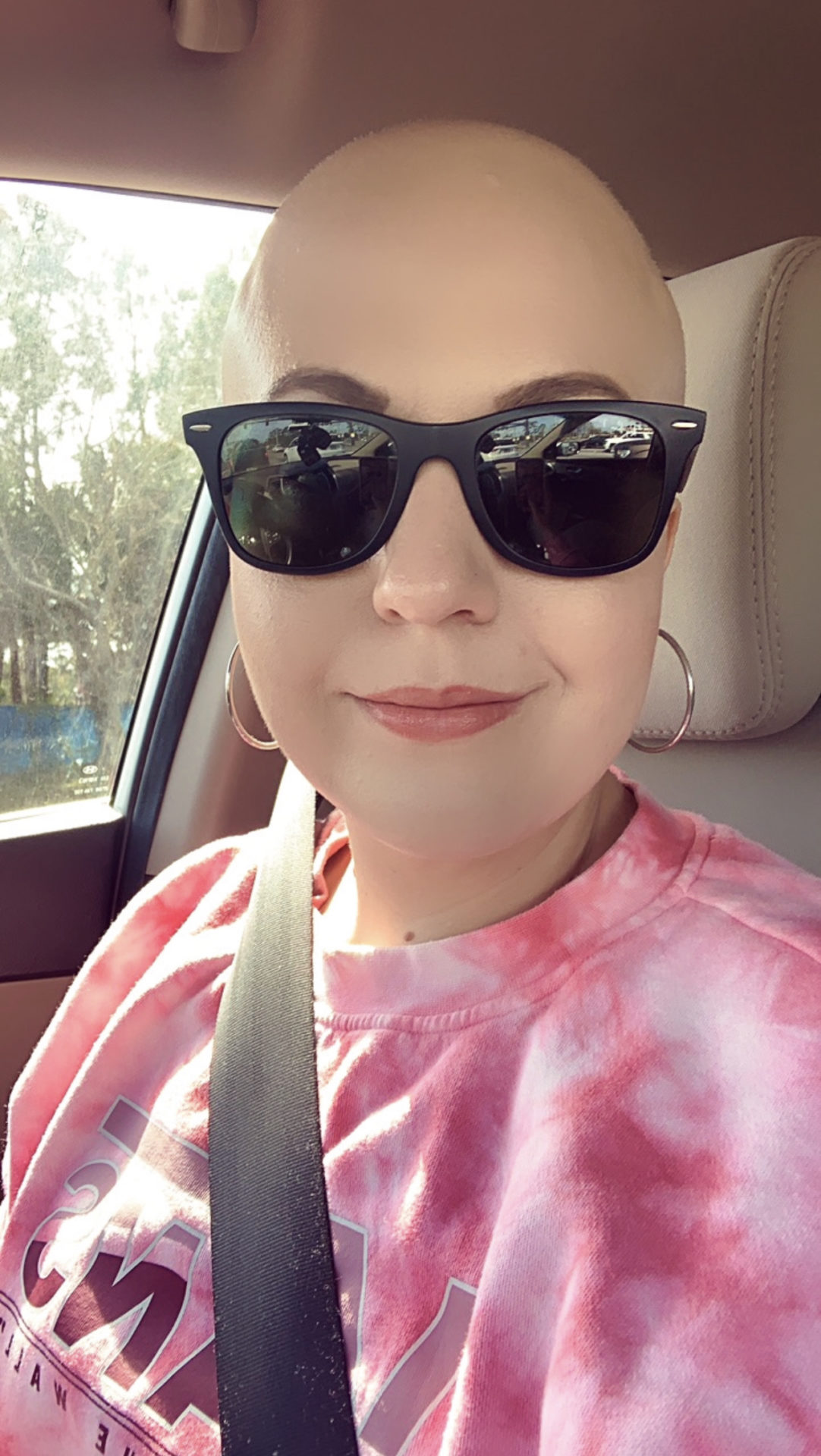

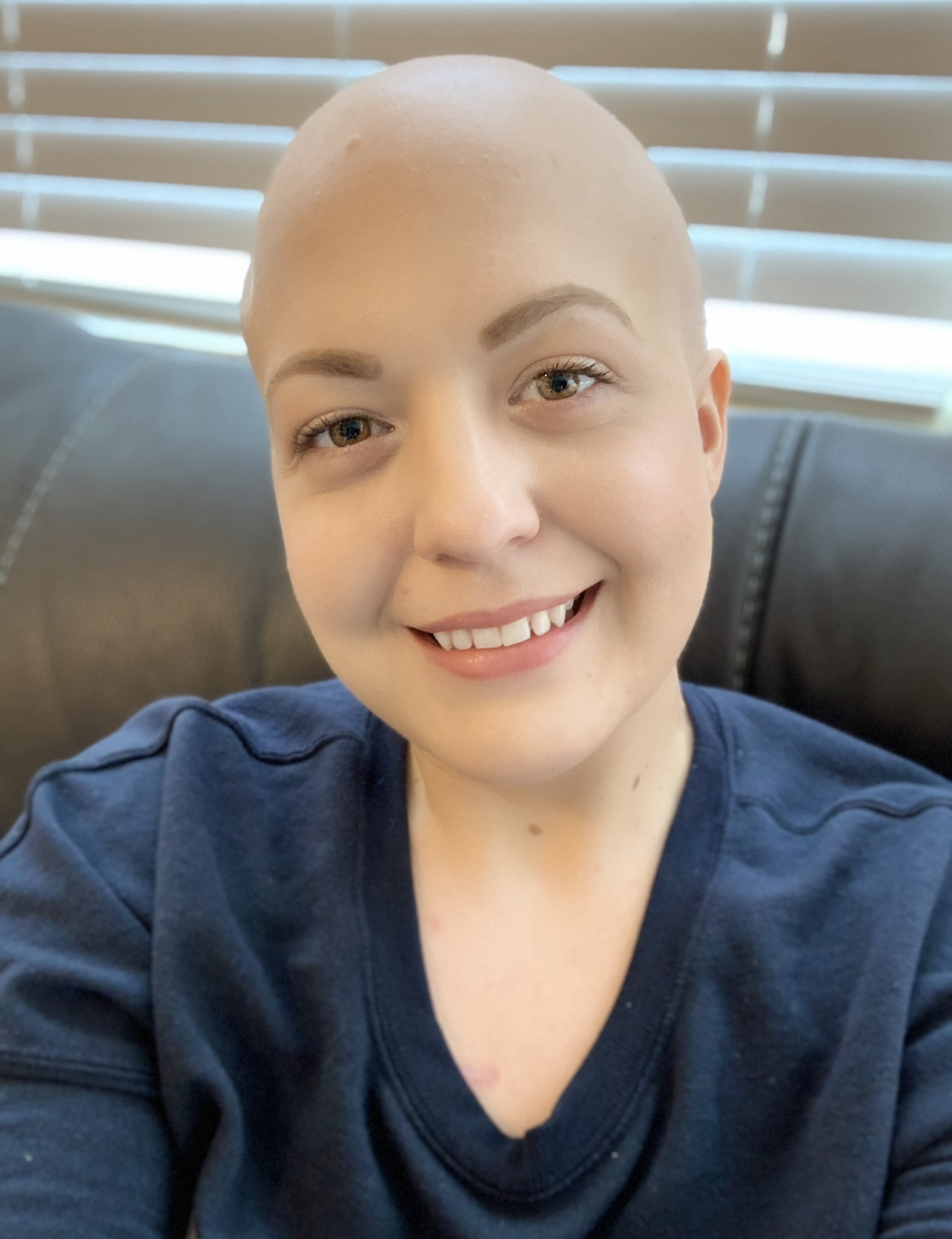
It was really hard for her to understand what was going on so I told her that she could put stickers all over my head and decorate it and give me new hair so it wasn’t so scary for her when I lost my hair. She’s like, “Oh, let’s decorate your head!” That was the first book I ever wrote, “Stickers On Her Bald Head.” It was the story of my daughter and I and how I told her about it. I didn’t know anything about making books. I just drew it and I thought it was a nice story and I thought it would be really cool if I could share the story.
»MORE: How to Talk to Kids About Cancer
I went to publishers and nobody ever gives you the time of day unless you have somebody advocating for you like a publicist. Everybody telling you it sucks. It’s a horrible idea. Good luck. Bye. I felt like it was going to help somebody out there so I was going to try to figure out something. Even if all these people told me I suck, I don’t care.
I found out how to self-publish on Amazon and I ended up self-publishing. That book’s definitely not as polished as my later books. It’s not as fancy, but the story and the authenticity, and the love – it comes through in that book.
Have you seen the impact that book has made on people?
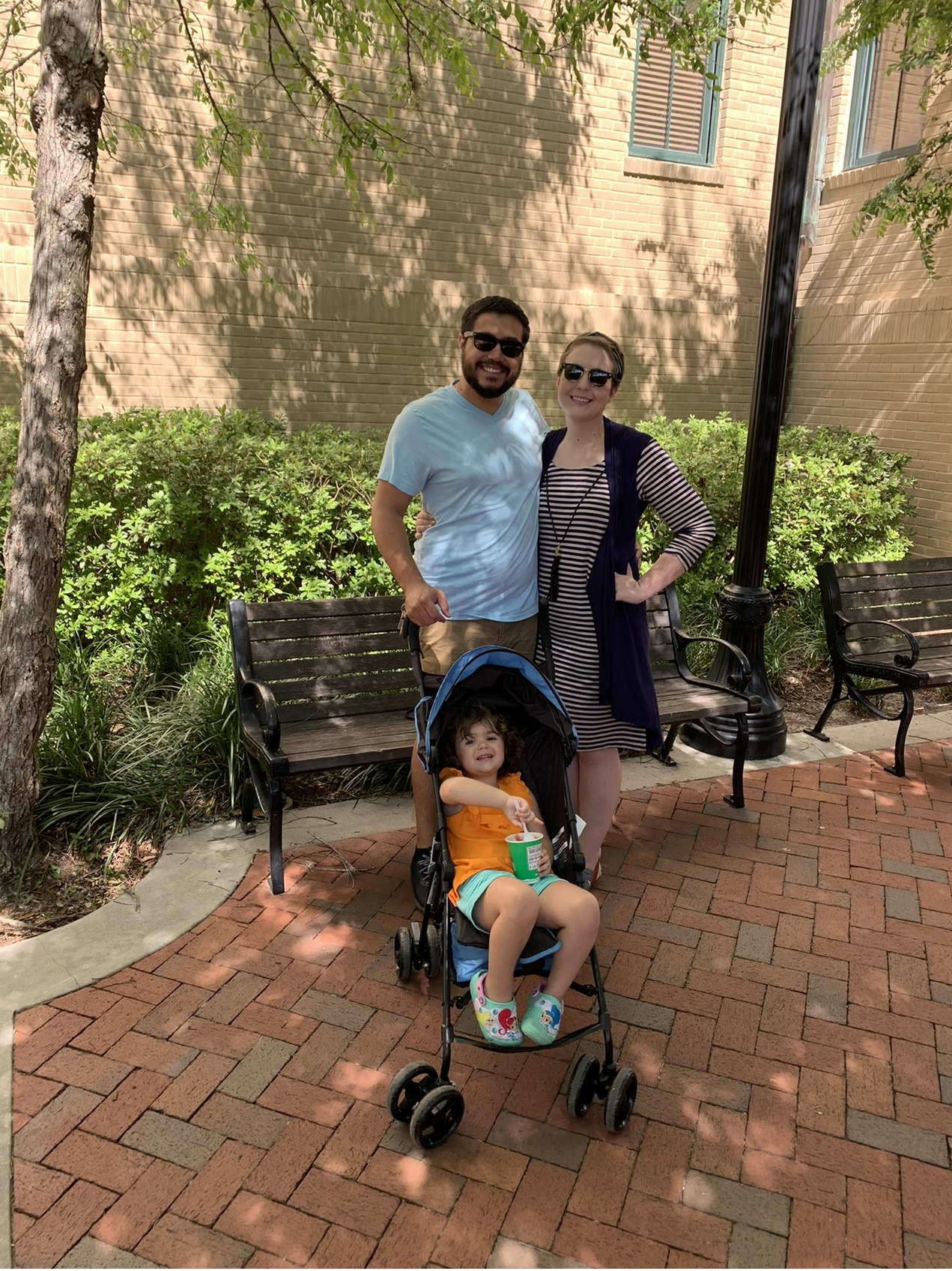
I ended up partnering with Bright Spot Network. They help parents who are going through cancer, and I got connected with them and said, “I have this book if you ever want to read it, it would be really cool.”
The girl ordered it. Her name is Haley, the owner of the nonprofit. Haley, a couple of weeks later said, “Hey, Chelsey. I just want to let you know I bought your book. I absolutely love it. I think it’d help a lot of people. I’m going to give it away for free to people who have cancer if they request it.” I just bawled, I said, “You’ve made my dream come true, the fact that this is going to be given out.”
I try not to read the reviews on Amazon because sometimes the reviews are special. But I saw this review from somebody who was in the Netherlands or something. It was a beautiful picture of their child putting stickers on their bald head and they said, “Thank you for this book.” So that book means everything to me. I’ve done other books, but that one – it’s my heart, it’s my story, it’s my life with my daughter. To see that little picture, I cried. I was like, “Look at the stickers on her head!”
Reflections
Did you end up preserving fertility?
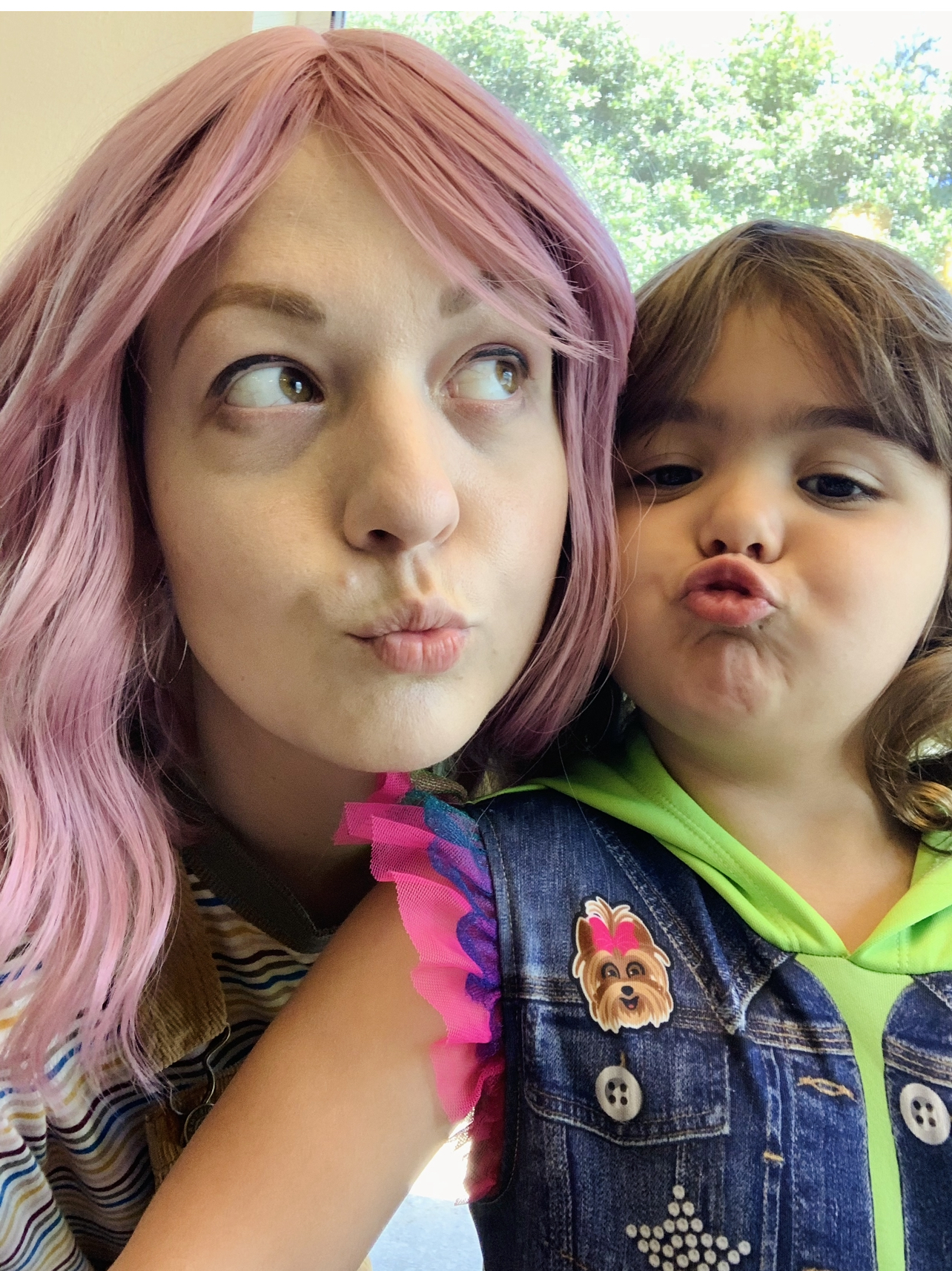
No, I didn’t. The cost was really prohibitive. On my page, I have a thing pinned to it that has resources. There are fertility resources to help you pay for it, but I felt priced out of that. Also, we had just gone through a whole year of me not working and I wasn’t on disability. I had very small amounts of disability through my work.
Nobody really talks to you about the price of trying to live so I had a high deductible plan when I first went into treatment. This is no exaggeration – in 2 months from October to December, I think we ended up spending $7,000 in copays. I went back to work for only 3 months and I had to step down so I got paid less.
»MORE: Financial Toxicity of Cancer Treatment
I’m a very proud person, I like to do everything on my own. I’m very independent. That’s just how I am. So having to make a Go-Fund-Me and ask for help just to live, I felt like I didn’t have the luxury to do that. It’s sad and I wish that wasn’t the case for anyone. People should have the ability to do that if they want to.
A lot of people don’t talk about secondary infertility, which is what I’m facing. I have a daughter and yes, she means the world to me, but I had names for other kids. I had these things and it’s okay to say that that’s painful.
What effect has your diagnosis had on your daughter?
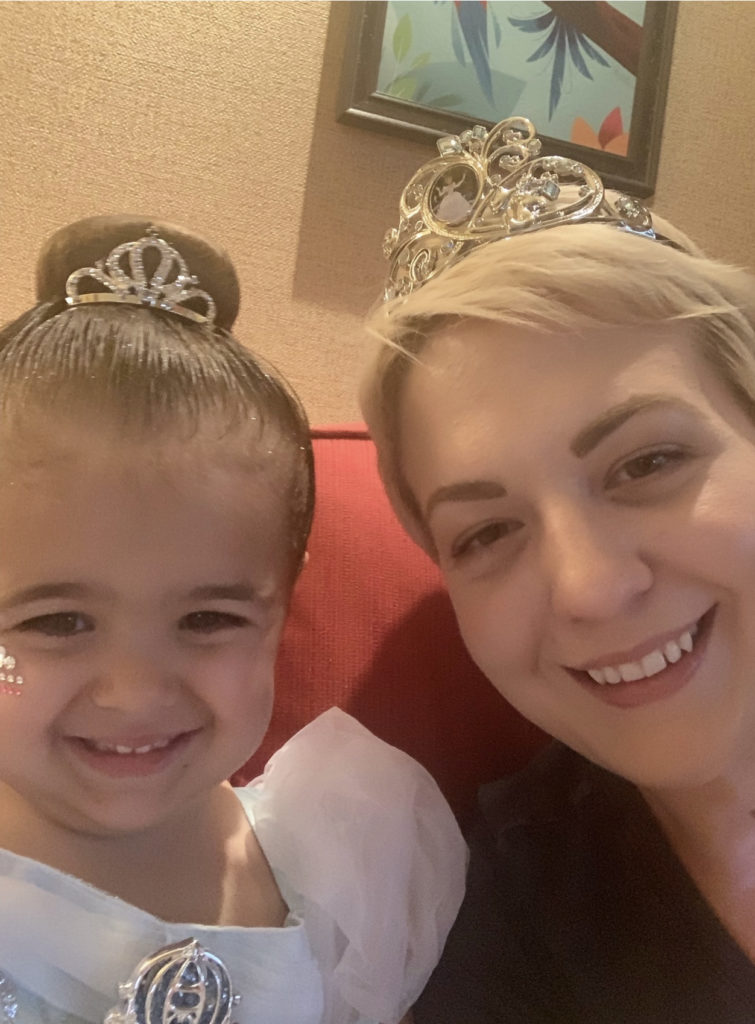
That’s one thing I want to convey. Even if your child is young, you should talk to them about what is happening in the best way you can for their age.
It’s long-lasting, the effects of cancer. You think your child is very young, they’re not going to really remember a lot of what has happened. The reality is, although they might not remember the days that happened or the exact events, they remember the feeling.
I have always been the primary attachment parent with my daughter. I breastfed my daughter so maybe that was why we were very attached. When I had to be gone for over a month, she was with my mom. She was well cared for. She was seeing me on the camera. I sent presents. I did everything. I had a special stuffie she had, but I wasn’t there. Mom wasn’t there.
We are very big believers in therapy for all sorts of things in my family. I realized that the trauma of everything that we had been through as a family really started to surface for her. In these years, she could look back more and see what had happened and understand more of what cancer is so she’s always very afraid. If I go to any doctor’s appointment, she wants to know what it is, what am I doing there, and what is happening. That’s one thing I want to convey. Even if your child is young, you should talk to them about what is happening in the best way you can for their age.
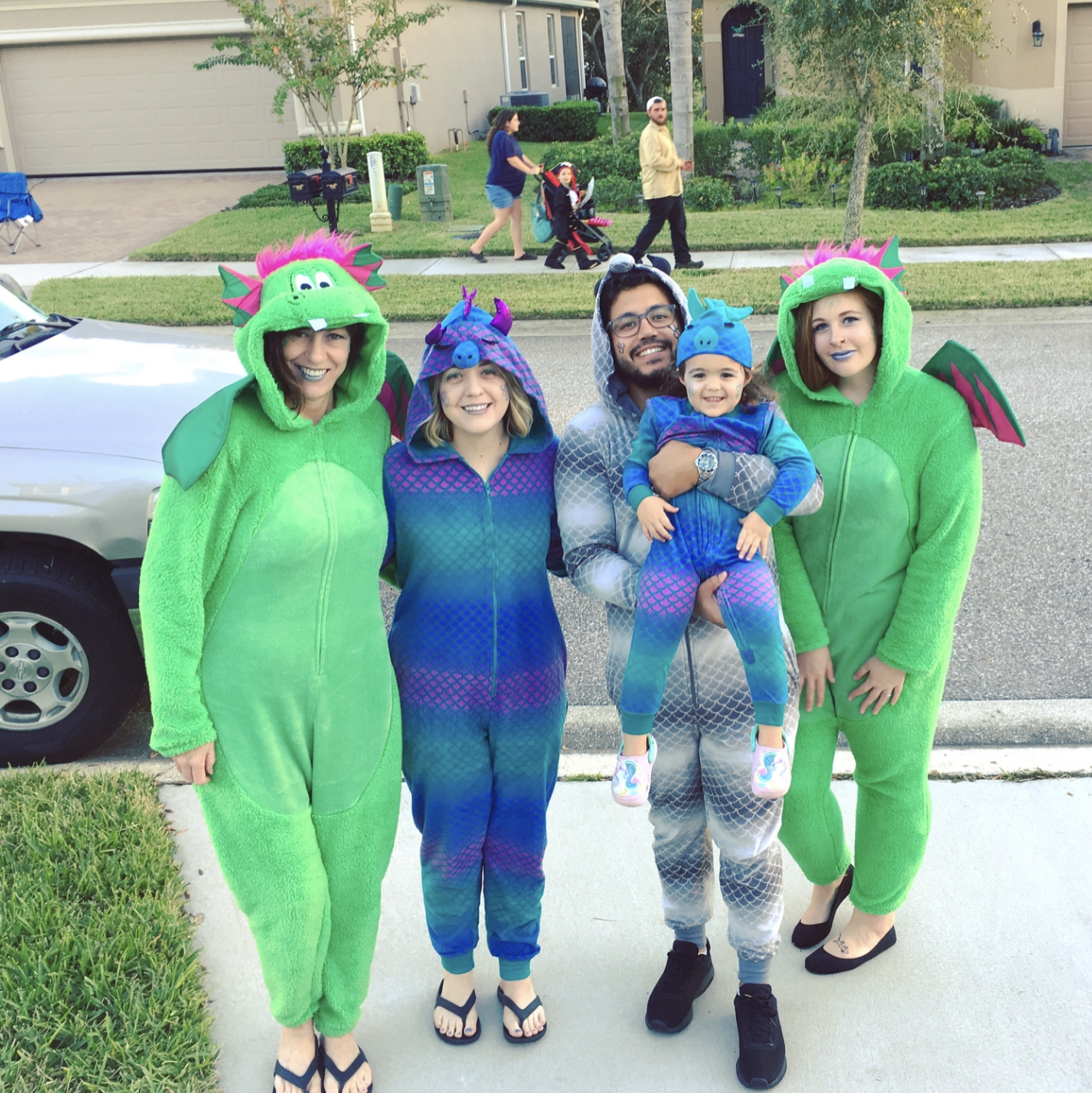
How have you talked to your daughter about cancer?
I did write a book about chemotherapy. It’s very basic, but it’s a way that kids can understand and it’s very bright and fun. Books are powerful. I think that the first time I had cancer, I didn’t tell her enough so she was left to fill in the blanks as best she could. I don’t even know what she thought. When I relapsed, I was a lot more transparent in a way that she could understand. I bought books. I talked to her.
Even now, I was talking to my therapist about it and she said, “Have you ever asked her if she thinks about Mom getting sick again or anything?” We talk about cancer because cancer’s a big part of my life with my job. I talked to her about other people, but I don’t think I’d ever asked that. I remember picking her up and I asked her, “Do you ever worry about mom getting sick again?” And she just started crying.
She said, “I think about it a lot and I hope you don’t go anywhere.” It broke my heart, but I knew that was a necessary thing to talk about. I think that parents are afraid to have these conversations sometimes, and I was too. I didn’t want to have that conversation. But the more you talk about it and reassure them mom’s coming back, the better it can be.
Also, there are people who aren’t going to be done with treatment. They have metastatic cancer. That’s another conversation. But just meeting them where they are, then giving them information that they can understand, and not making it feel like they’re not part of the plan or solution.
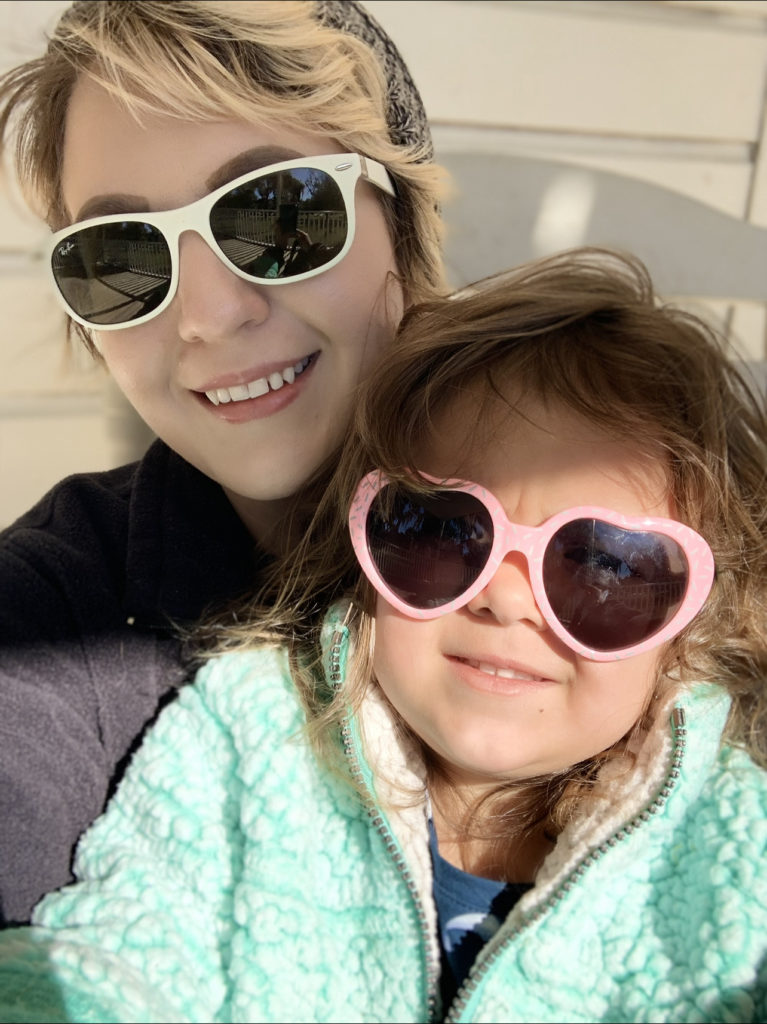
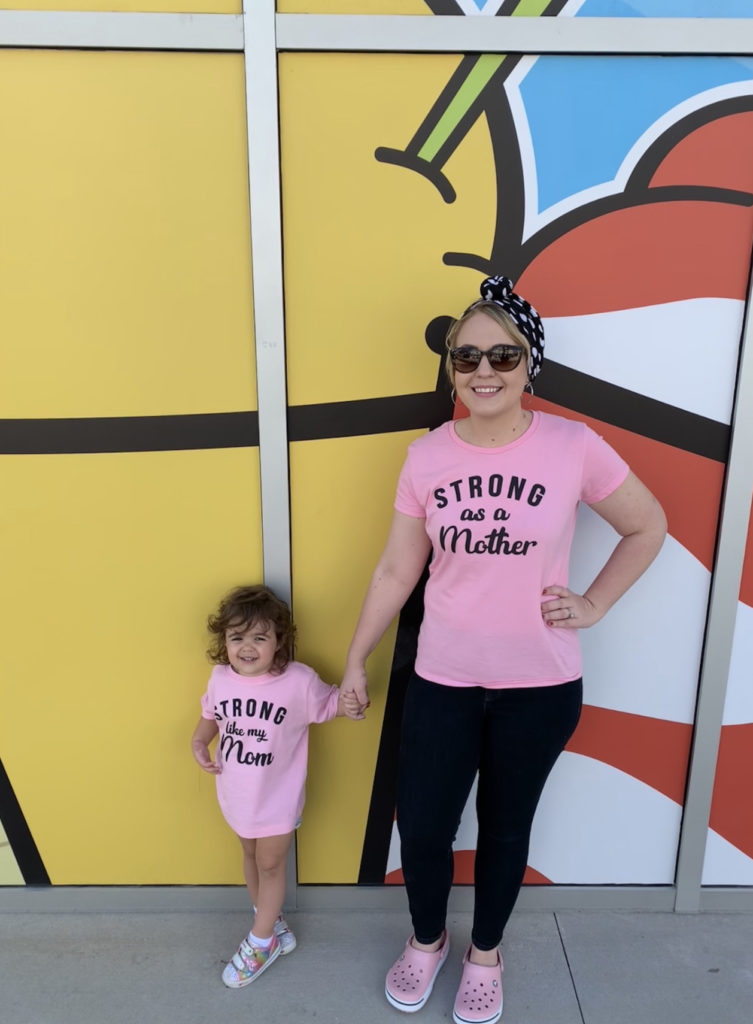
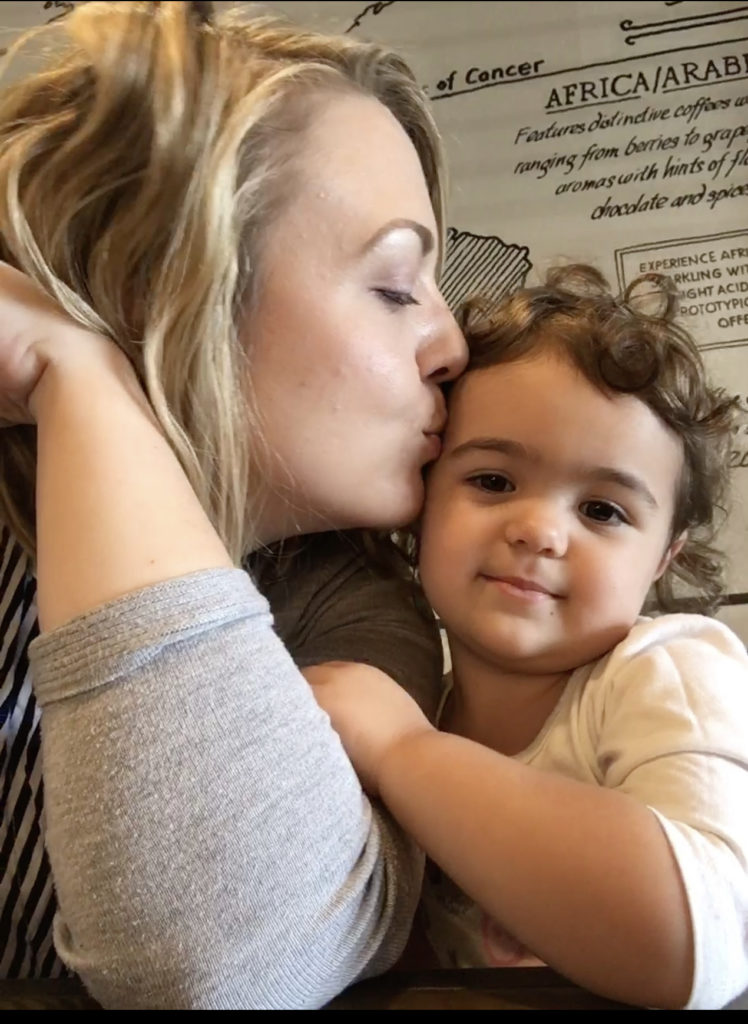
She was involved. I talked to her and I said, “Hey, mom’s going to this.” I even brought her last time to the appointment and I had her see who my oncologist is, what goes on there. She thinks Mayo Clinic is a fun place to go to Starbucks because they have that there. She doesn’t think it’s scary anymore. So much of what’s scary in life is what’s not known and I think in a kid’s world, it’s even worse.
What final advice do you have for someone on their cancer journey?
There are a couple of things. Number one, I tell people to protect your information. You don’t owe everyone in the world a news report about your cancer. You don’t owe anyone anything. It’s very overwhelming when you get diagnosed. You have people like Sally from first grade who you haven’t talked to in 10 years coming by to say, what’s going on? I thought because somebody asked me, I had to reply because that’s the polite thing to do. It’s not really the time to be worrying about everyone else. It’s the time to be worrying about you and how you’re going to get through this and how you and your family are going to get through this.
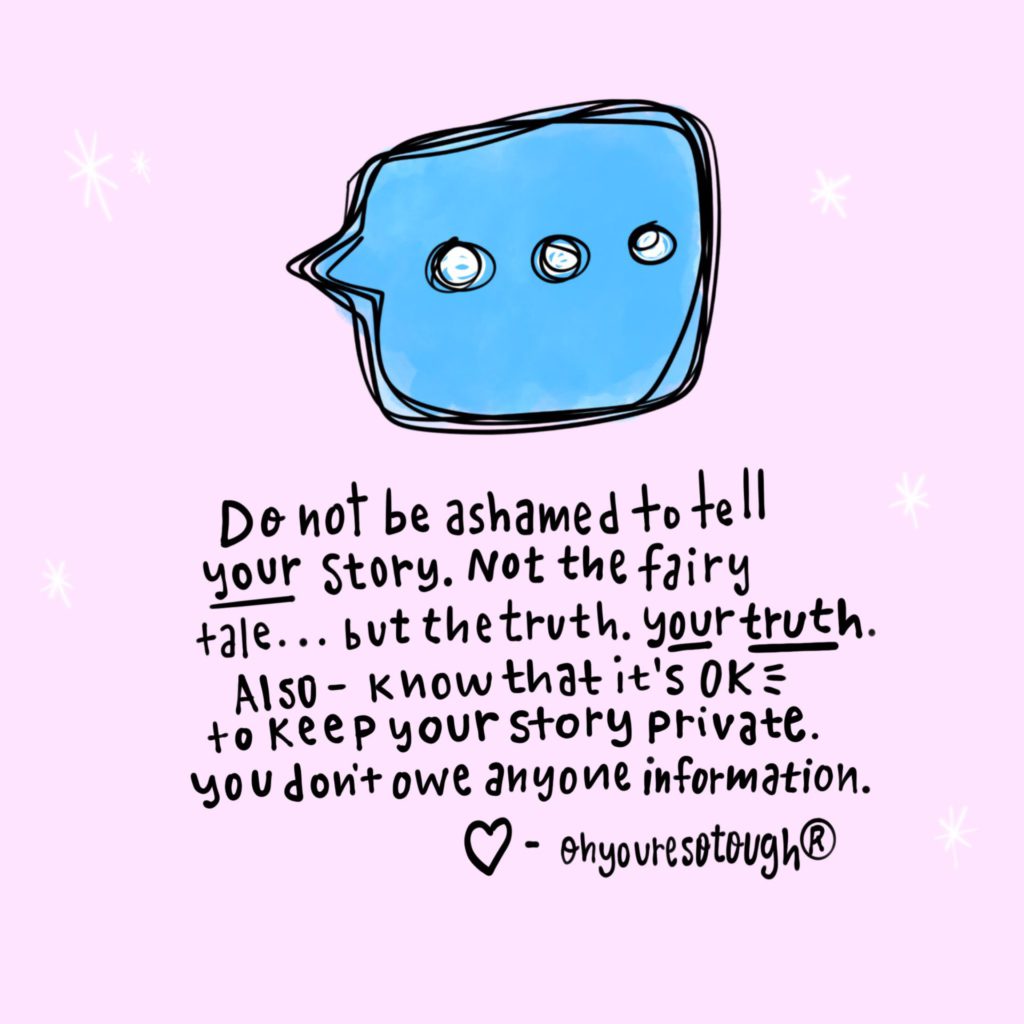
Also, not always having to put on a brave face. I’m hopeful that people in your life will give you space to be happy or sad.
Advocating for yourself, trusting your gut. If something doesn’t feel right – I don’t care if this guy has a thousand accolades or this woman – you are allowed to go ask for a second opinion. It’s not offensive, it shouldn’t be hurting their feelings, and if they have a problem with that, that was number one right there. Get out of there.
Don’t forget that you’re still you. I think a lot of our identity can become cancer. Don’t get me wrong, you do change. I’m a completely different person than I was before cancer. I always framed it this way. The person who I was died the day I had cancer. I found out I had cancer and this new person came. I like to reframe it that, yes, that person isn’t there anymore, but that person isn’t gone forever. There are pieces of that person you can go back to and pick them up off the shelf.
Once you’re through all of this sort through it and ask, what did I like about my life before? Did I like working 80 hours a week? Nah, get rid of that one. Did I like drawing and painting? Yeah, let’s look at that more.
Live for yourself. Life is too freaking short. There’s no other way to put it. Make yourself happy. Focus on your family. Do what you always wanted to do.
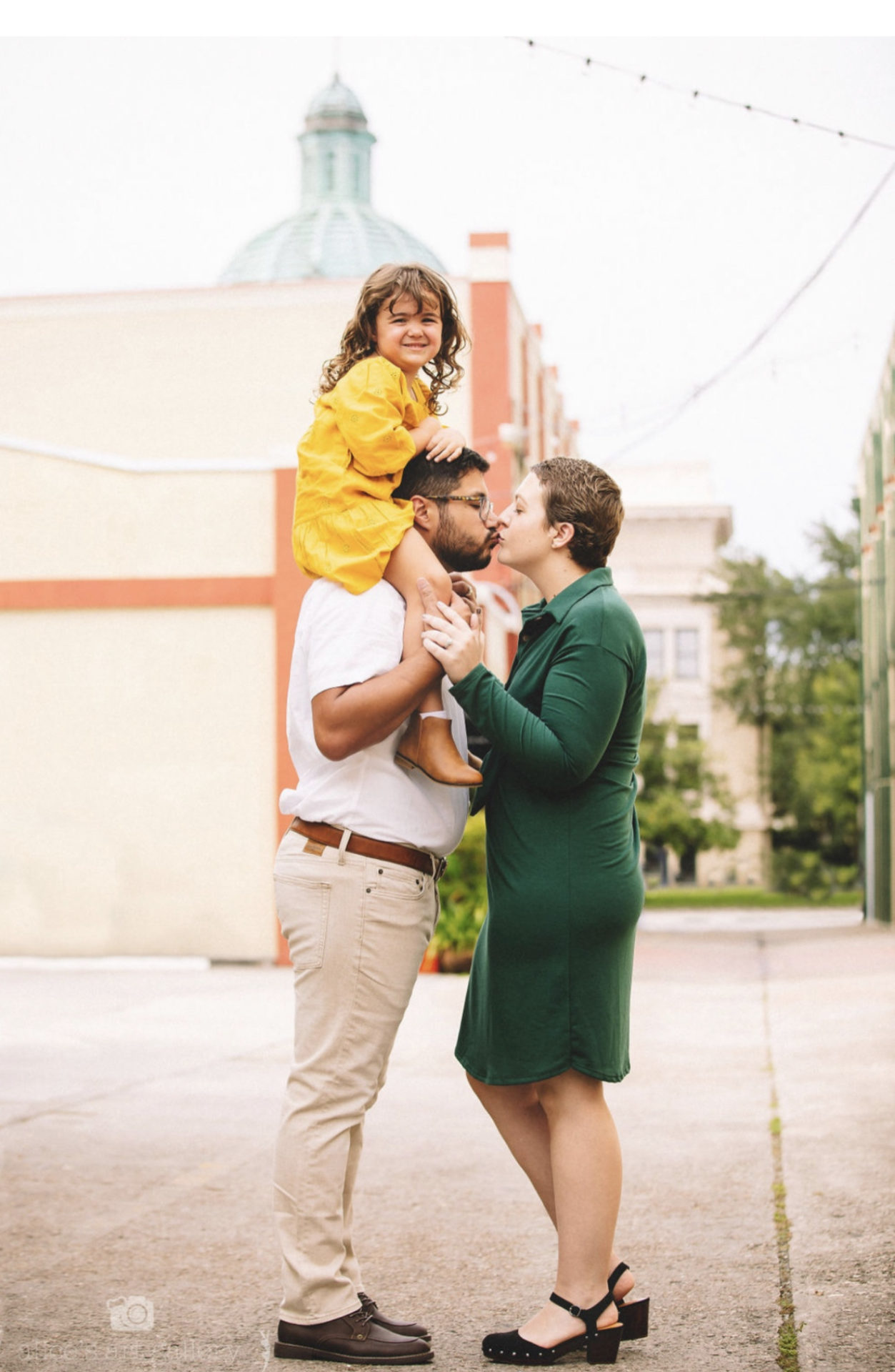
Also, even if you have cancer and it’s never going to go away and everything is doom and gloom, you can still dream, be, do, make. Write the next great novel from your hospital bed. Do whatever you want. If you just want to lay there and watch Price Is Right every single day, do it because the way you cope with cancer is the way you cope with cancer and that’s valid.
More Hodgkin’s Lymphoma Stories
Jessica H., Hodgkin’s Lymphoma, Stage 2
Symptom: Recurring red lump on the leg (painful, swollen, hot to touch)
Treatment: Chemotherapy
Riley G., Hodgkin’s, Stage 4
Symptoms: • Severe back pain, night sweats, difficulty breathing after alcohol consumption, low energy, intense itching
Treatment: Chemotherapy (ABVD)
Amanda P., Hodgkin’s, Stage 4
Symptoms: Intense itching (no rash), bruising from scratching, fever, swollen lymph node near the hip, severe fatigue, back pain, pallor
Treatments: Chemotherapy (A+AVD), Neulasta
